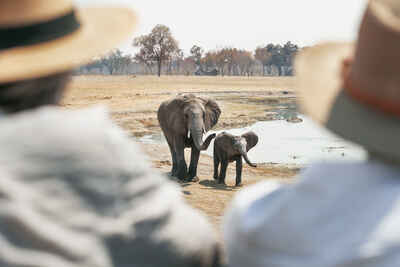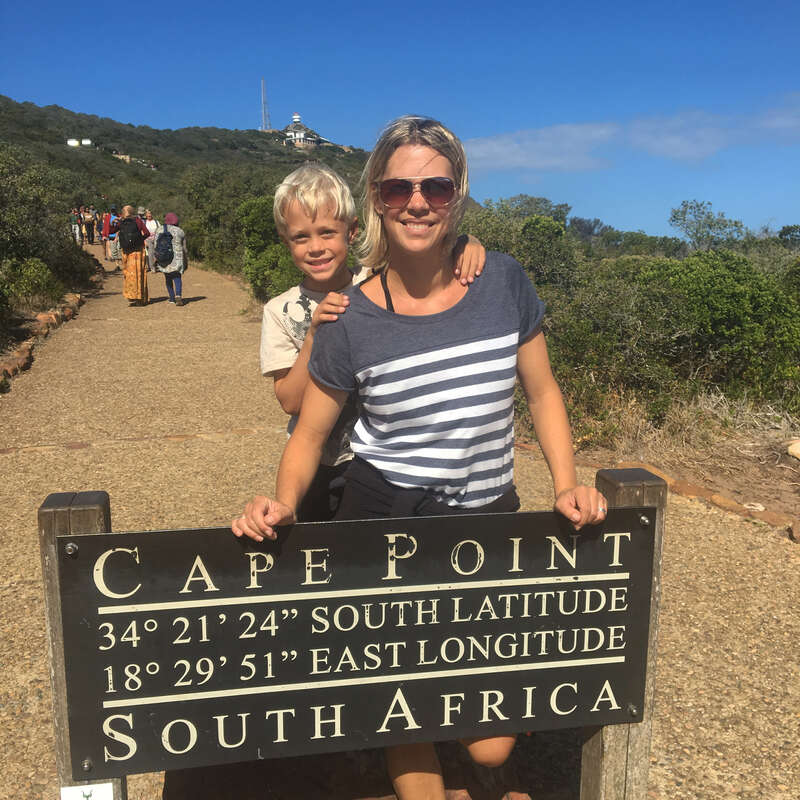About Davison's Camp
Spread out in the intermittent shade of African rosewood (Guibourtia coleosperma) trees, Davison's Camp lies ...
... in the private Linkwasha Concession, south-east of Zimbabwe’s Hwange National Park. It overlooks an open plain, whose permanent waterhole is popular with elephants and a variety of other wildlife, which is often seen from the camp.
Davison's is a small, well-maintained camp which is functional but not as luxurious as other camps in the region. Nevertheless it is in a good location for wildlife and offers great value for money.
Accommodation
9 tented chalets
Children
Best for aged 16+
Open
All year
Activities

4WD Safari

Birdwatching

Guided walking safari

Night drive

Private activities

Sleeping under the stars
Traveller reviews of Davison's Camp
9 real, un-edited reviews from Expert Africa's travellers.
Arrived 7 May 2022, 3 nights
"Davison's Camp review"
Overall rating: Good
Arrived 10 Sep 2018, 3 nights
"Very good game drives"
Overall rating: Excellent
Arrived 5 Sep 2018, 3 nights
"Nice camp, but not what we expected"
Overall rating: Average
Arrived 23 Jan 2017, 3 nights
"Davison's Camp review"
Overall rating: Good
Arrived 30 May 2016, 3 nights
"A perfect place from which to see game"
Overall rating: Excellent
Arrived 10 Mar 2016, 3 nights
"Davison's Camp review"
Overall rating: Excellent
Arrived 15 Jun 2014, 3 nights
"variety of wildlife, convivial camp"
Overall rating: Excellent
Arrived 5 Nov 2011, 2 nights
"Davisons Camp review"
Overall rating: Good
Arrived 8 Sep 2011, 1 nights
"to short to really enjoy"
Overall rating: Excellent
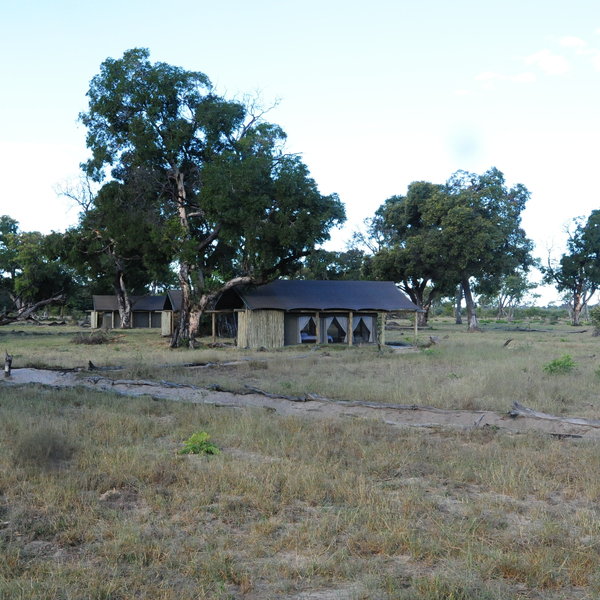
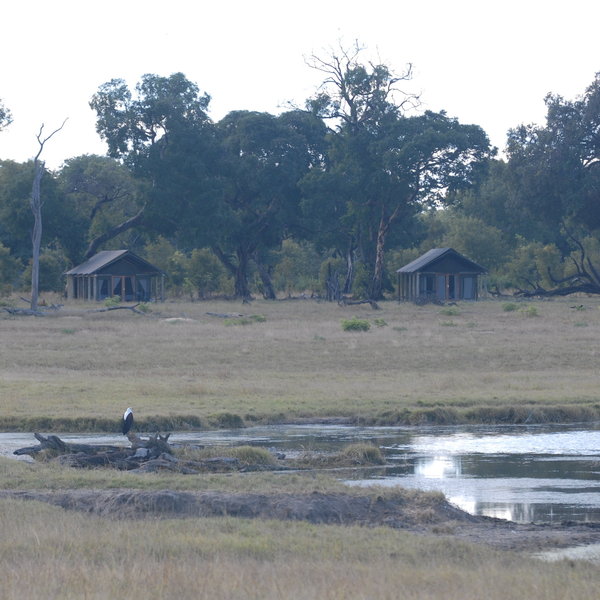
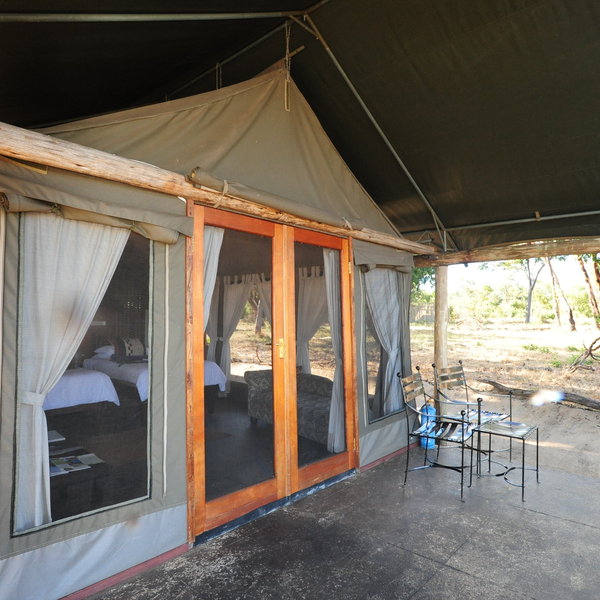
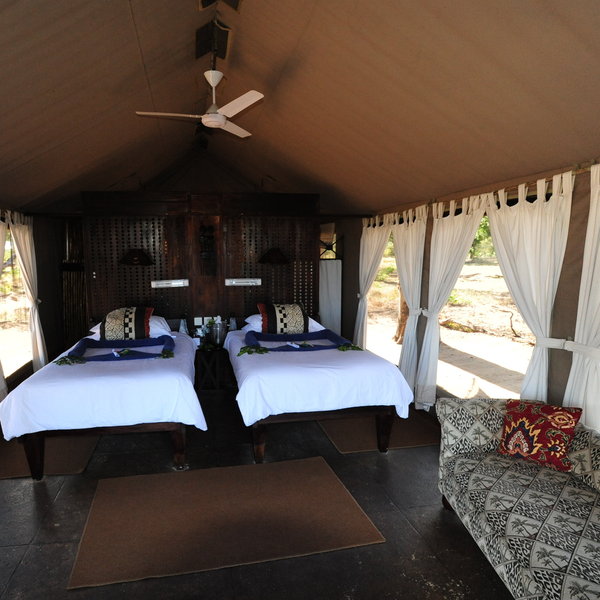
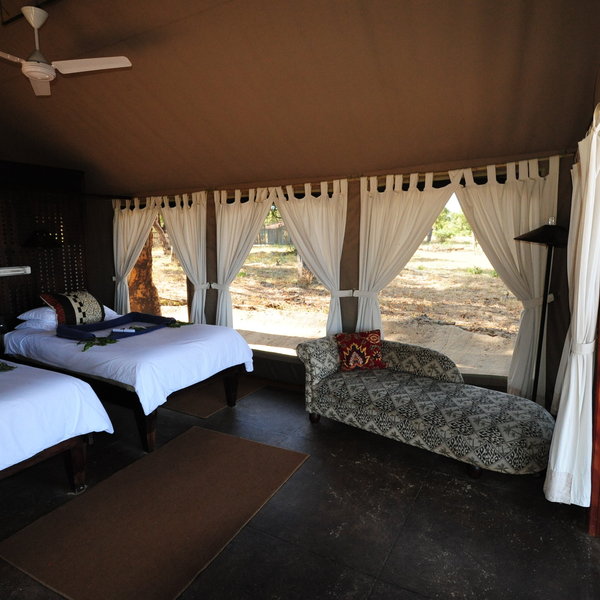
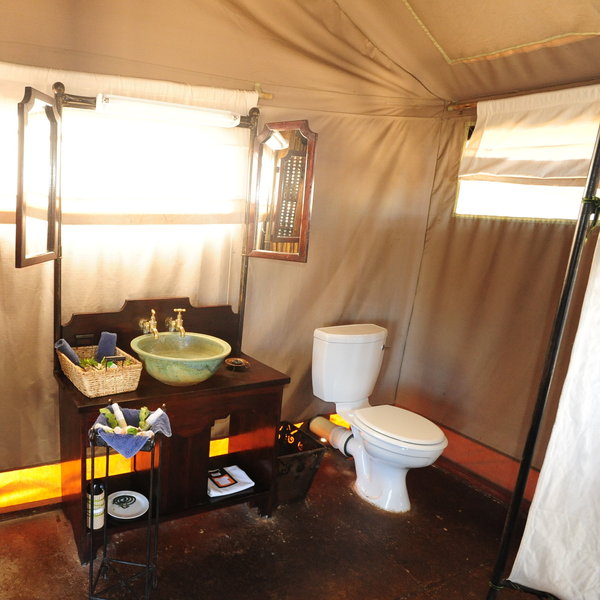
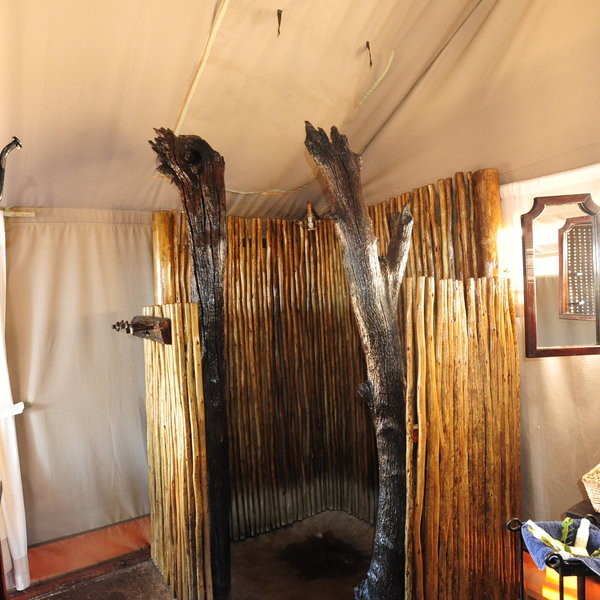
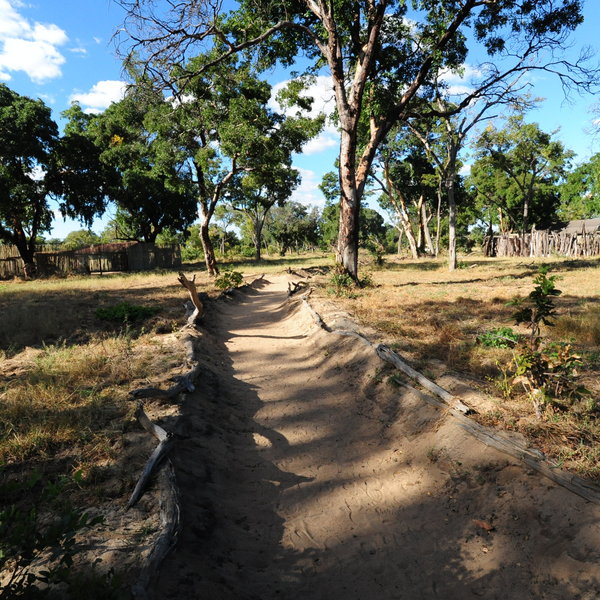
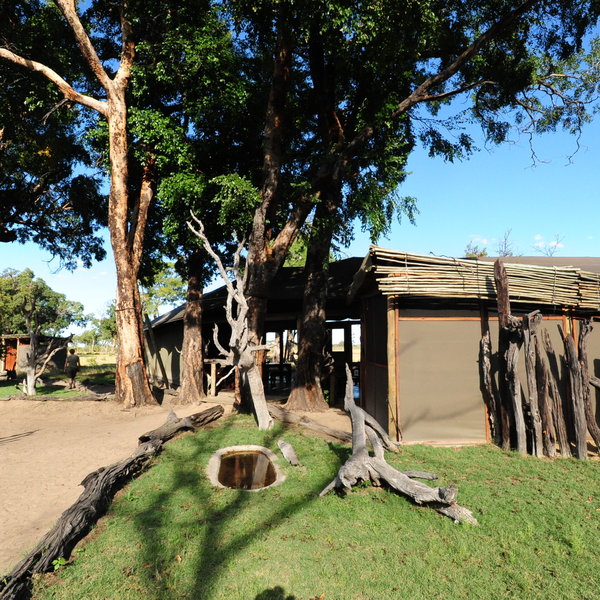
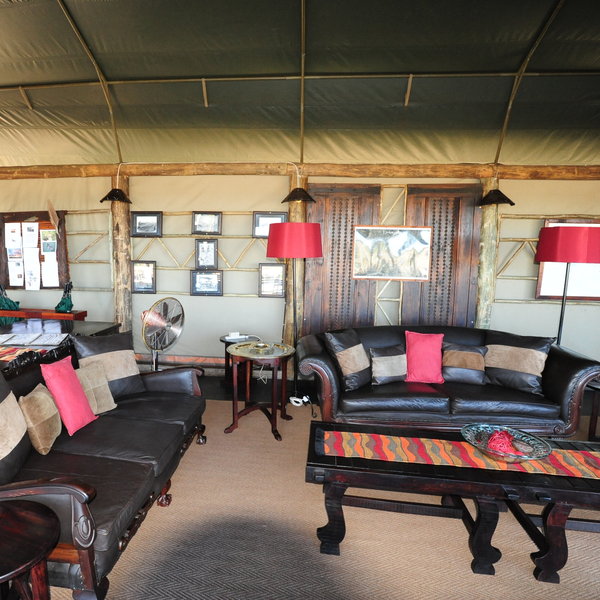
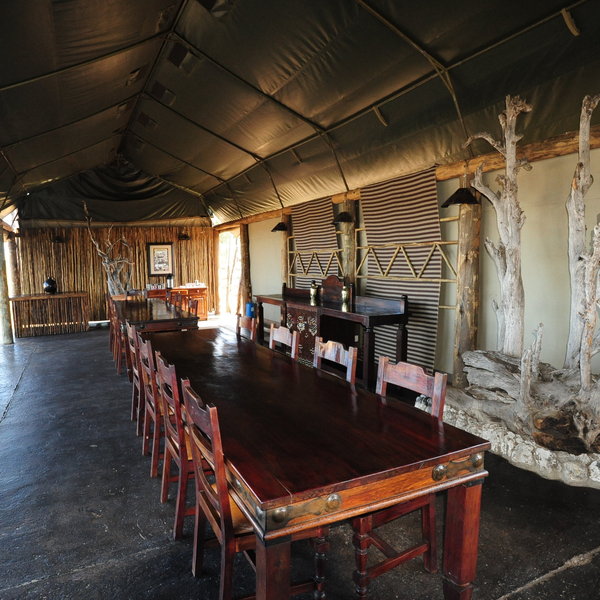
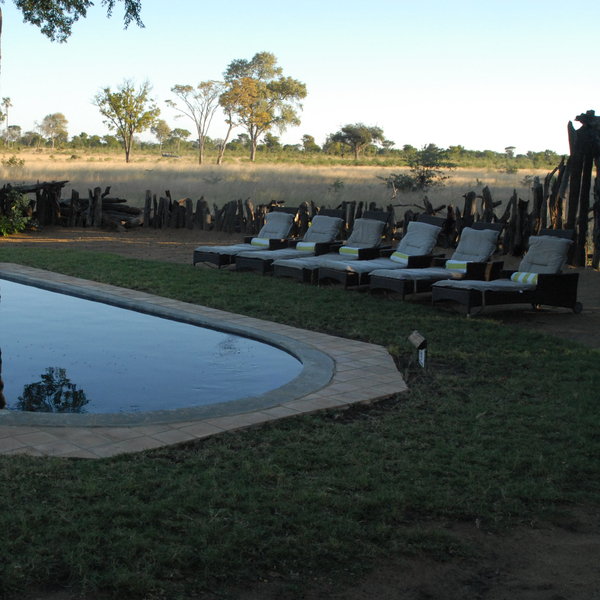
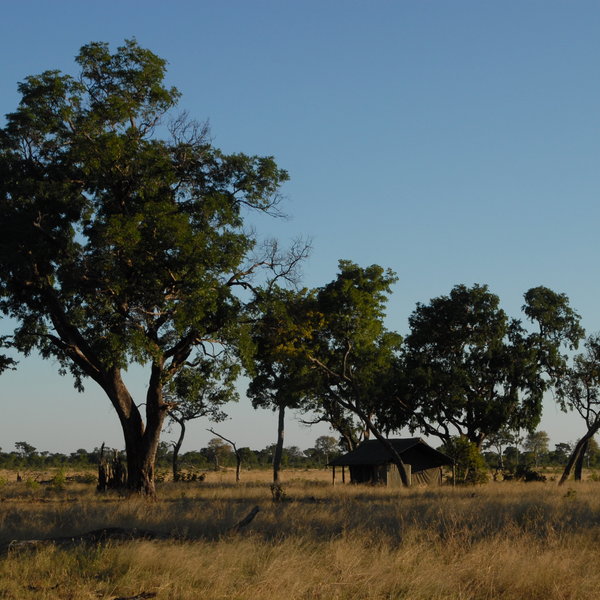
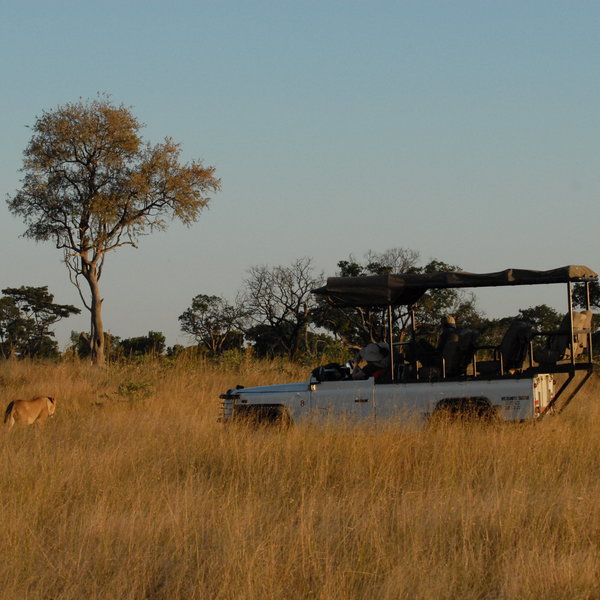
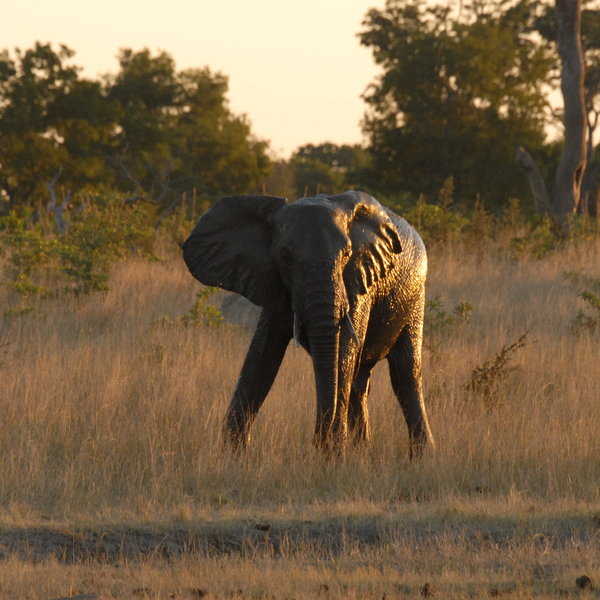
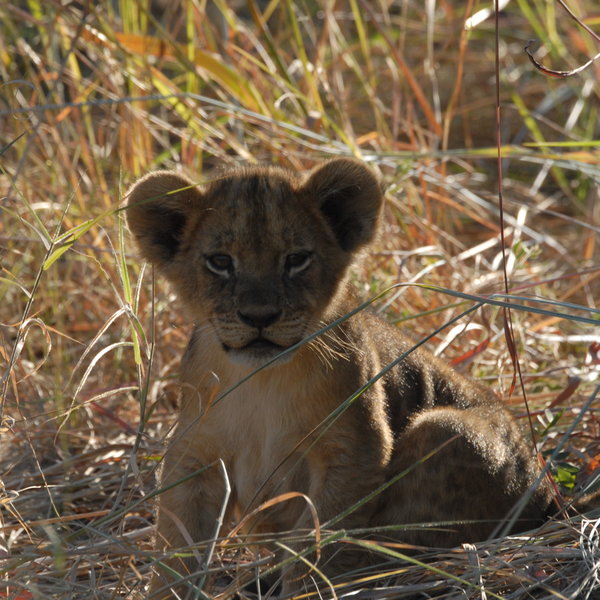
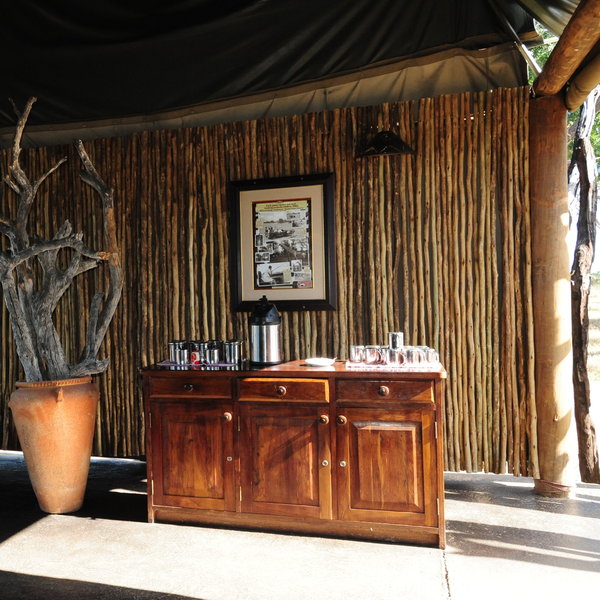
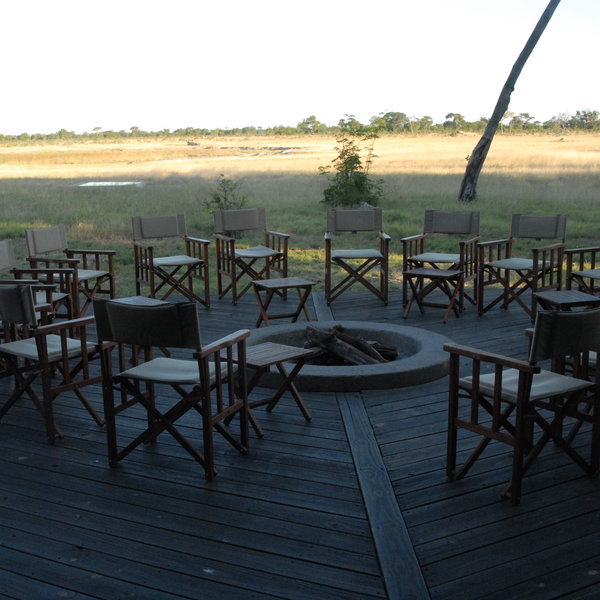
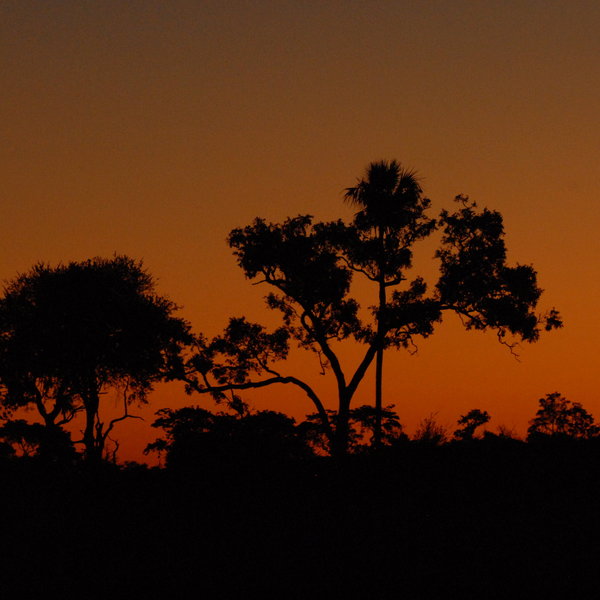
Expert Africa's gallery
When we travel we take lots of photos ourselves to give you a real and un-edited view of the safaris. See our 36 pictures of Davison's Camp to get the candid view.
View galleryDavison's Camp: Our full report
Spread out in the intermittent shade of African rosewood (Guibourtia coleosperma) trees, Davison's Camp lies ...
... in the private Linkwasha Concession, south-east of Zimbabwe’s Hwange National Park. It overlooks an open plain, whose permanent waterhole is popular with elephants and a variety of other wildlife, which is often seen from the camp.
During our last visit in November 2017, the camp – which was named after the park’s first head warden, Ted Davison – was being used as a base for Wilderness Safaris’ Children in the Wilderness project. This aims to promote conservation and sustainable tourism through education, attracting children from rural communities in Africa. It was fantastic to see the children enjoying their time in the bush and learning about the value of the wildlife that often makes their home lives difficult. However, it did make it a little tricky to get a true sense of the camp from a guest perspective! Here is what we know of Davison’s from this visit and previous ones.
The simplest camp in the private Linkwasha Concession, Davison's shares the reserve with its sister properties, Makalolo Plains Camp, Little Makalolo Camp and Linkwasha Camp.
Each of Davison’s nine tented chalets has a concrete veranda decked out with a couple of metal chairs and a table, and overlooking the waterhole. The tents themselves were in the process of being upgraded on our visit and although the new tents are of a very similar style and design it is clear they are an improvement. Inside, the chalets are fairly basic but clean and comfortable, with twin beds or a double, ceiling fans and concrete block floors topped with rugs. A canvas roof provides protection from the elements while broad mesh windows give high and wide vistas of the waterhole in front of camp.
At the time of our visit, an impressive varnished-wood partition separated the bedroom from the tastefully decorated bathroom and provided storage space too, but this is being replaced by a low brick wall. As part of the refurbishment, the shower and toilet have been partitioned from the deep soapstone sink, affording additional privacy. Good-quality complimentary toiletries are provided.
One of the chalets at Davison's is suitable for a family, combining a normal double chalet with a second en-suite twin bedroom. From a family perspective, it's also worth noting that the camp is often willing to provide an extra mattress on the floor of a twin or double room to allow three people per tent.
A well-worn path links the chalets to Davison's main area, a V-shaped structure with a fan-cooled lounge and small bar in one wing and a long communal dining table in the other. It's very open and airy with solid concrete floors largely covered by substantial rugs. The wood-and-canvas walls on one side conceal the entrance road to camp, while the opposite side is completely open to the waterhole in front.
For an elevated view of the waterhole, there’s a new tree-shaded viewing deck, which is also a perfect spot to relax with a book or sundowner. And on hotter days the pool is a welcome way to cool off.
Activities at Davison’s focus on 4WD game drives in open-sided vehicles into both the park and the concession, while evening drives, when spotlights are permitted as dusk falls on the return to camp, offer the chance to see the nocturnal side of Hwange's wildlife. In the morning walking safaris, escorted by an armed guide with a professional Zimbabwean guides' licence. Typically you’ll be offered two activities per day: one in the early morning and another in the afternoon/early evening.
Activities
4WD Safari
Birdwatching
Guided walking safari
Night drive
Private activities
Sleeping under the stars
Families & children
- Attitude towards children
- Davison's Camp accepts children aged six and above although there are no specific provisions for them.
- Property’s age restrictions
- No children under six
- Special activities & services
- The camp usually insists that guests with children under 12 hire their own private vehicle for game drives.
- Equipment
- None
- Generally recommended for children
- We don't recommend Davison's Camp for children under about 16; it is an open and unfenced safari camp through which dangerous wildlife is likely to pass.
- Notes
- Children must be under parental supervision at all times.
Food & drink
- Usual board basis
- Full Board & Activities
- Food quality
- On our last visit in November 2017 we only dropped into Davison’s for a short visit and didn’t have a chance to eat here. That said, we would expect a similar standard and style of food to that at its sister camp, Little Makalolo Camp.
Expect a breakfast of cereals, yoghurt, fresh fruit, cold meats, cheeses, muffins and breads. Lunch is likely to be a set menu, perhaps with a couple of options. Similarly we would anticipate a three-course dinner with a choice of mains. Occasionally the lodge may put on a traditional evening with a braai (barbecue).
Tea and coffee are available throughout the day in the dining area. - Dining style
- Group Meals
- Dining locations
- Indoor and Outdoor Dining
- Further dining info, including room service
- For special occasions, meals can be arranged at guests' tents.
- Drinks included
- Soft drinks, bottled water, spirits, local beers and a selection of wines (usually South African) are included. Imported wines and spirits and champagne cost extra – and may even need to be requested in advance.
Our travellers’ wildlife sightings from Davison's Camp
Since mid-2018, many of our travellers who stayed at Davison's Camp have kindly recorded their wildlife sightings and shared them with us. The results are below. Click an animal to see more, and here to see more on our methodology.

100% success

100% success

100% success

100% success

100% success

100% success

100% success

100% success

67% success

67% success

67% success

0% success

0% success

0% success

0% success

0% success

0% success

0% success
Getting there
- Location
- Hwange National Park, Zimbabwe
- Ideal length of stay
- Davison’s Camp works well as a two- or three-night stay in the southern part of Hwange National Park.
- Directions
- The best way to access Davison's is to transfer by road from either Makalolo or Hwange Main Camp airstrips.
- Accessible by
- Fly-and-Transfer
Communications
- Power supply notes
- There is a back-up generator incase the national grid supply fails.
- Communications
- There is no mobile phone signal here, but the camp can communicate by Satellite phone in case of emergency.
- TV & radio
- None
- Water supply
- Borehole
- Water supply notes
- All chalets have hot and cold running water and flushing toilets.
Health & safety
- Malarial protection recommended
- Yes
- Medical care
- The camp has a basic first-aid kit and there are first-aid trained staff on site. The nearest doctors are in Victoria Falls town and Bulawayo.
- Dangerous animals
- High Risk
- Security measures
- The camp is patrolled at night by unarmed security guards
- Fire safety
- Davison's has a fire extinguisher in each tented chalet and others are dotted around the camp.
Useful info
- Disabled access
- Not Possible
- Laundry facilities
- A complimentary laundry service is included, although for cultural reasons, women's underwear isn't accepted. Washing powder is provided for guests who wish to do this themselves.
- Money
- There are safe bags for valuables in the chalets. Visitors may take these to the lodge office to be locked in a large communal safe.
- Accepted payment on location
- Cash payments may be made in US dollars, GB pounds, South African rand and euros.
Plan and book your trip with Expert Africa
All of our trips are tailor-made, so we'll always adapt them to suit you. Talk to an Expert and let us plan and arrange your perfect trip.

Talk to an Expert
Call or email us now! We’ll match you with the Specialist in our team who is best suited to help you. Then together we can start planning your trip.

Set up your itinerary
Based on our experience and your ideas, your specialist will create a detailed, costed itinerary. We’ll refine it together, until we have a trip that you’re perfectly happy with.

Prepare for your trip
The same Specialist will make the seamless arrangements for your trip, send you detailed travel documents, and be available to answer any questions before you depart.

Travel with peace of mind
After you set off, you’ll be cared for by our partners in Africa, most of whom have worked with Expert Africa for decades. And if you ever need us urgently, we’re available 24/7.

When you return
We love to learn about your trip, and so will always be grateful if you’ve the time to give feedback to your Specialist when you return.
Davison's Camp's location
Look closer at the environment and surroundings of Davison's Camp.
Other lodges in Hwange National Park
Alternative places to stay in this same area.
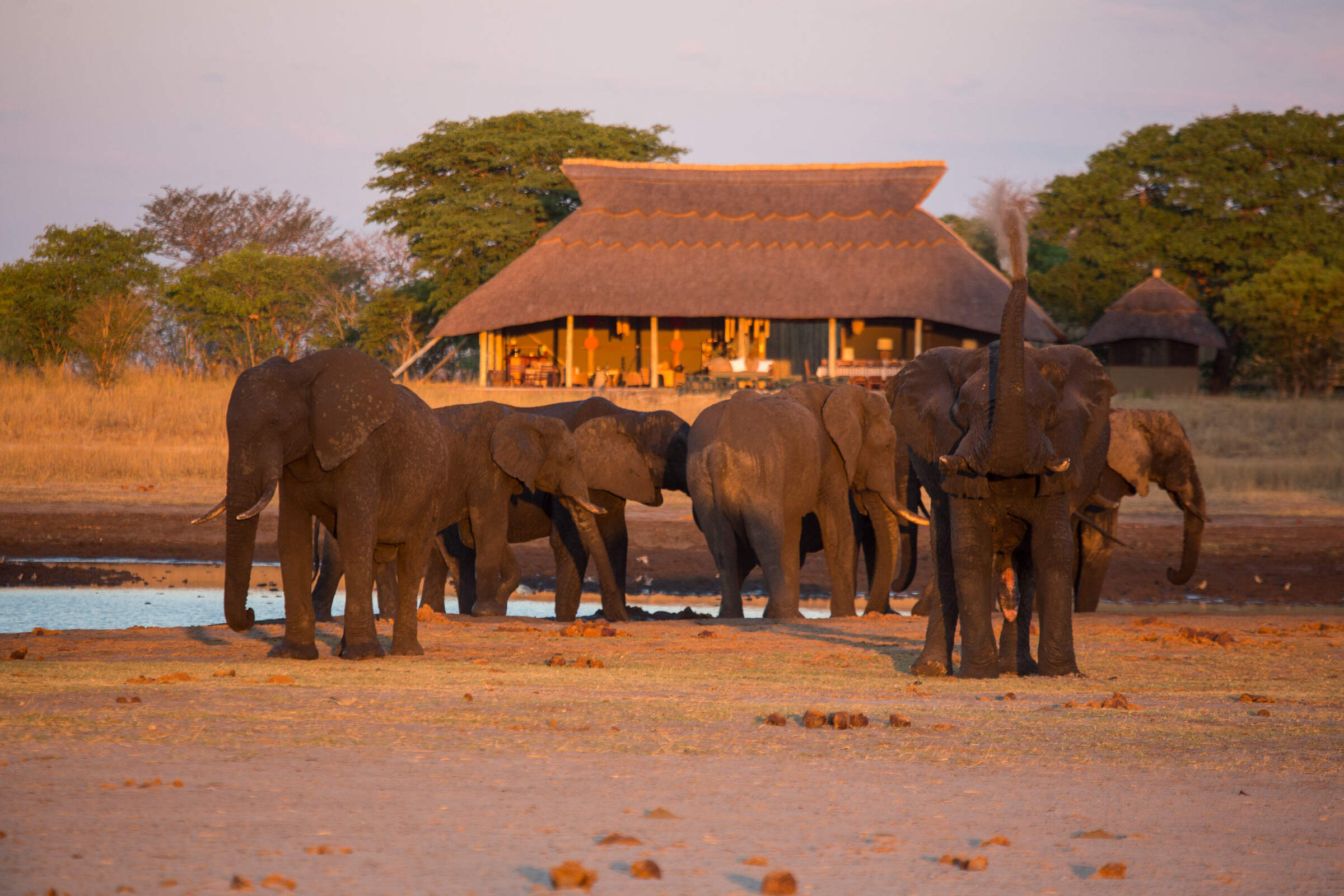
Camp Hwange
Overlooking a waterhole in a remote part of Hwange National Park, Camp Hwange offers great guiding in a pristine wilderness at reasonable prices.
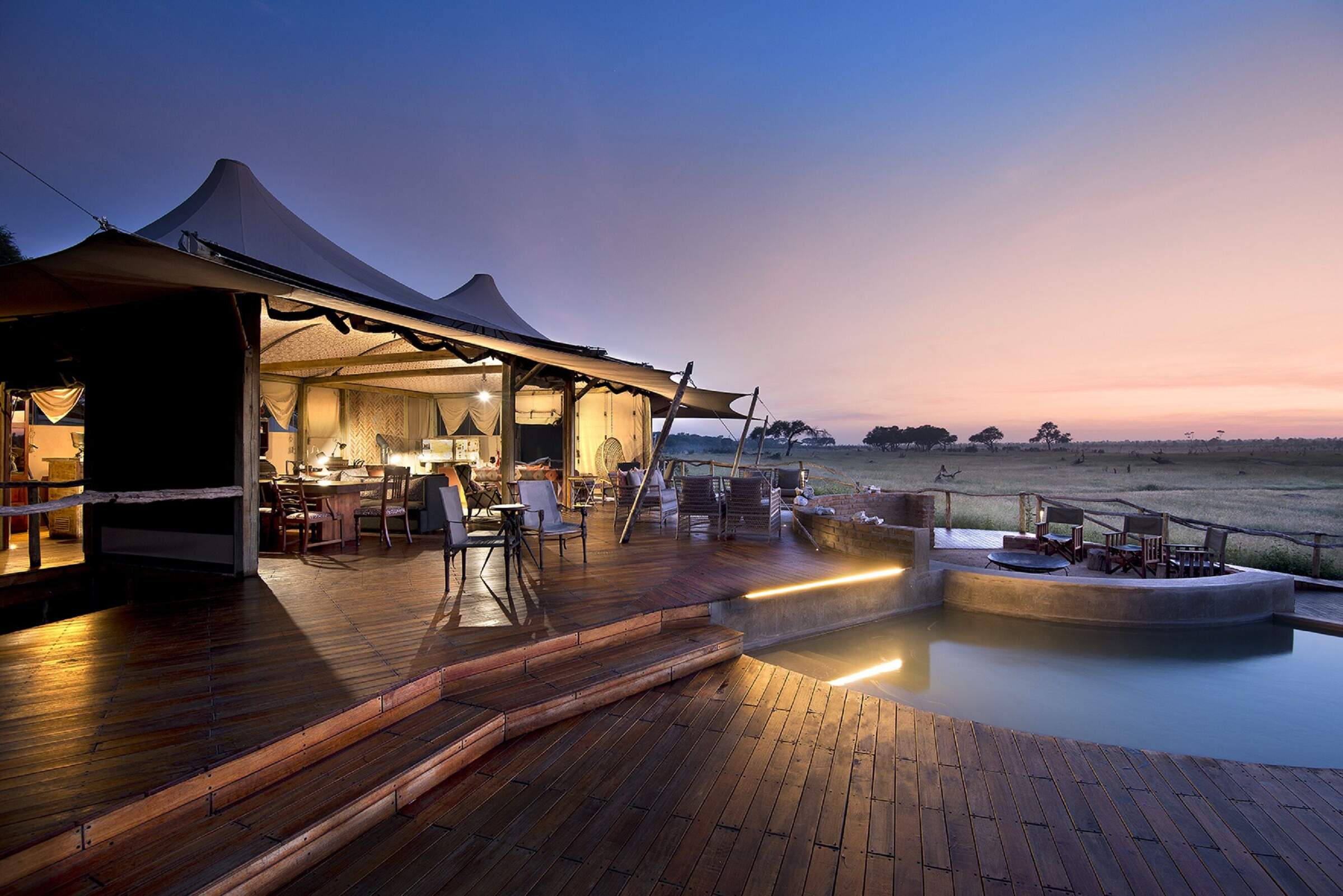
Somalisa Camp
Somalisa is a luxurious, yet remote, safari camp in Hwange National Park, offering walking safaris and game drives.
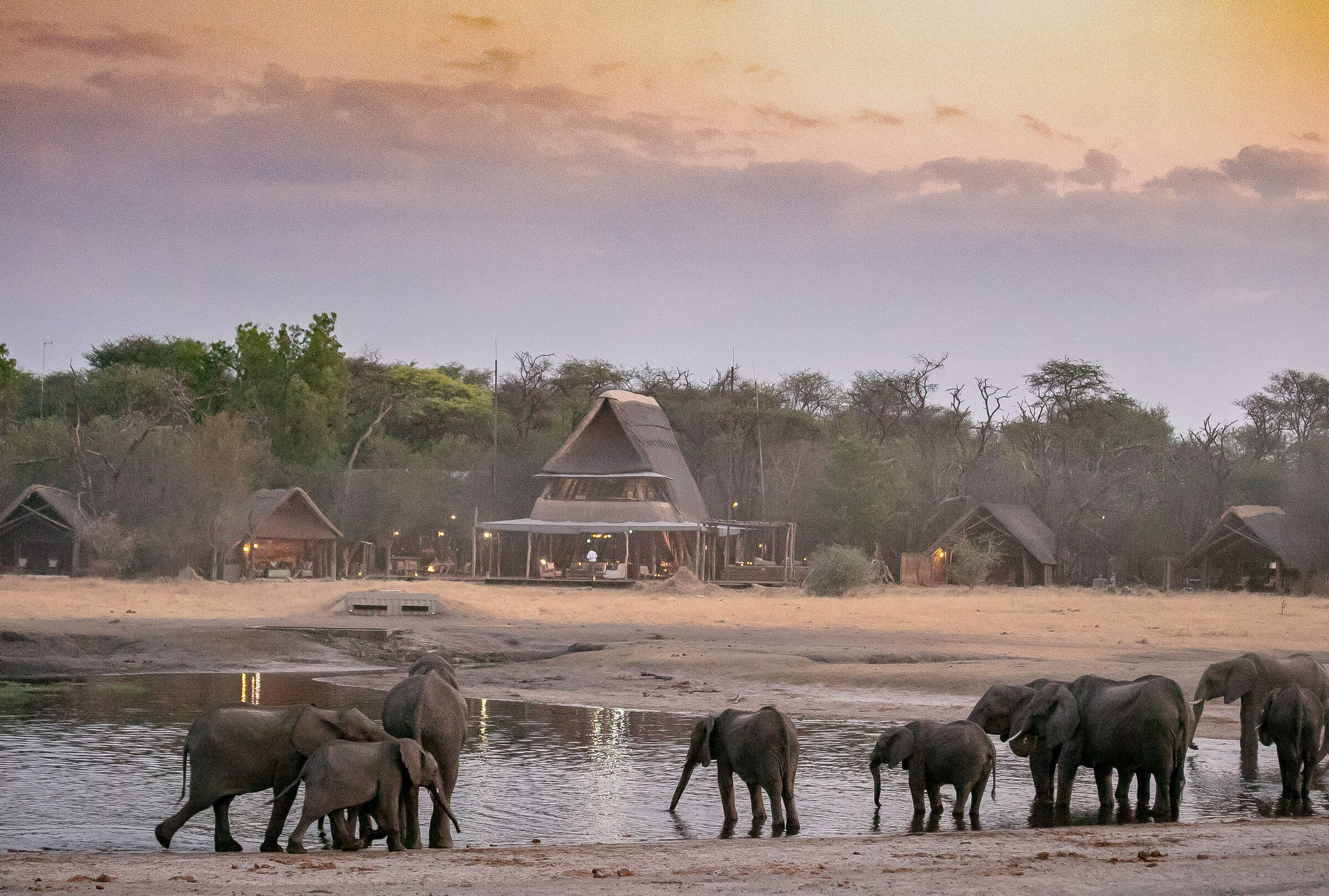
The Hide
Located in a small, private concession, The Hide is a relaxed and comfortable camp offering submerged hides and great family accommodation.
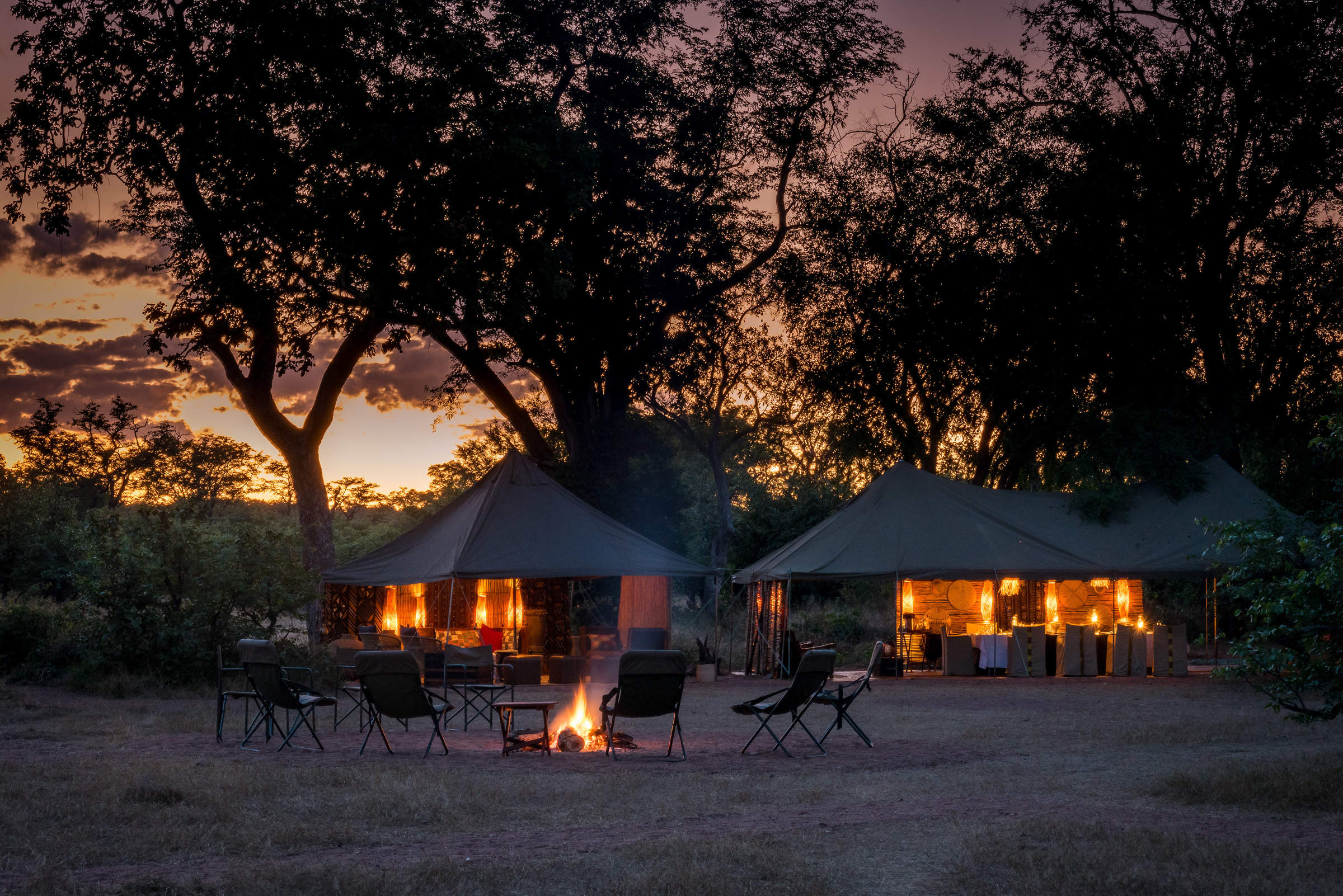
Hwange Bush Camp
Hwange Bush Camp is a small seasonal camp offering comfortable tents, great food, and superb guiding, and is often used by exclusive groups.
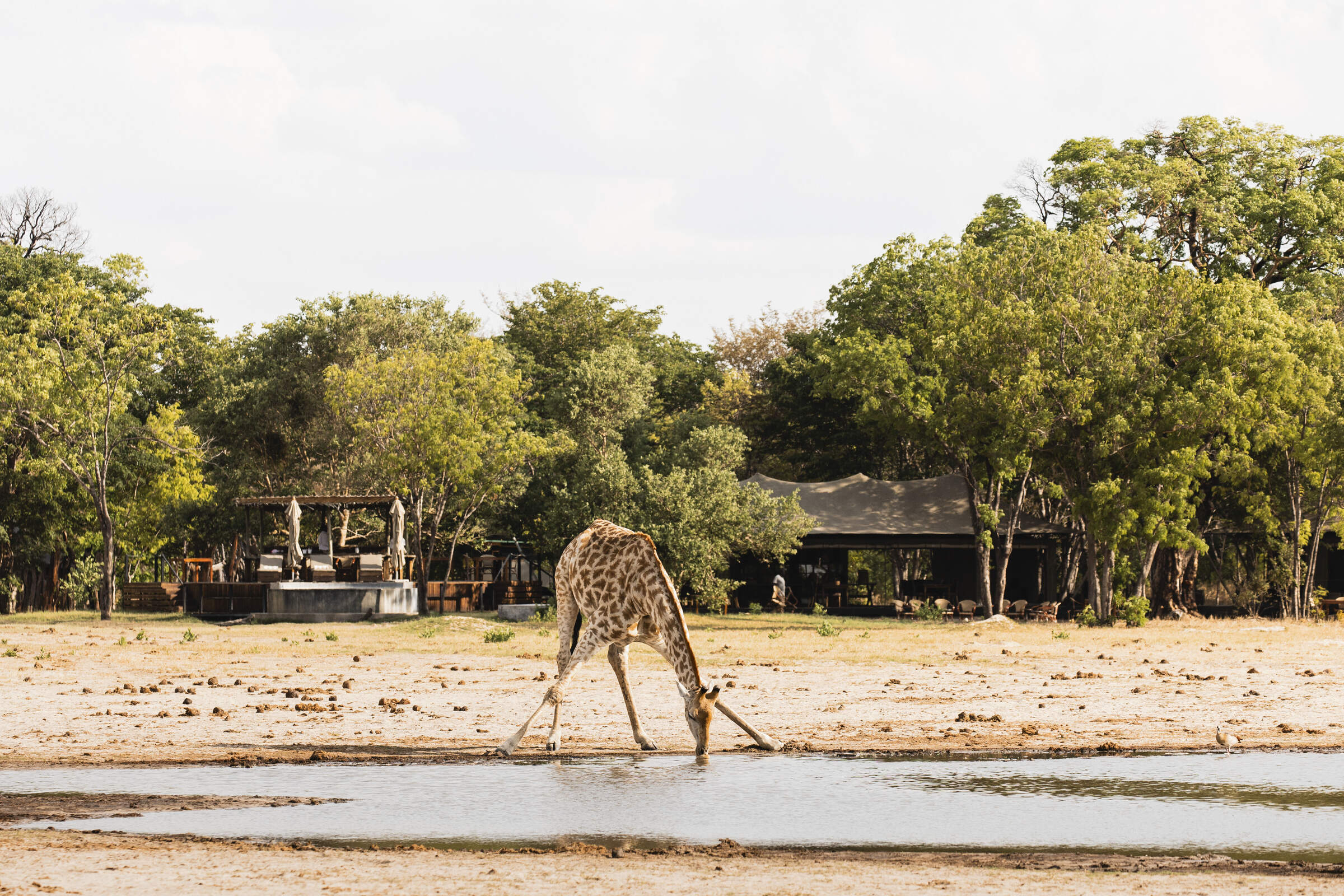
Little Makalolo Camp
Tucked away in Hwange National Park overlooking a waterhole, Little Makalolo Camp combines top guiding with excellent wildlife watching.
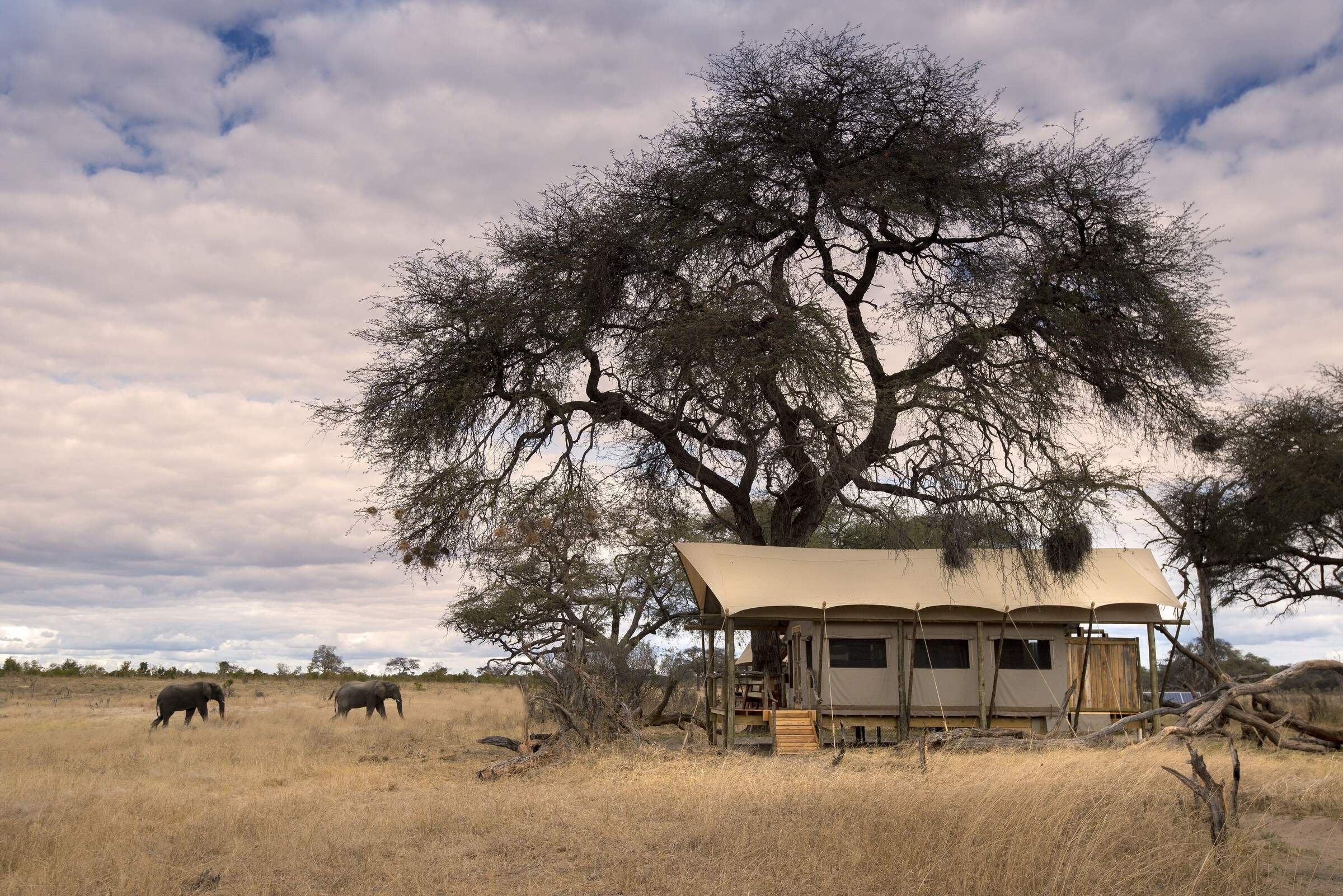
Somalisa Expeditions
A simple but stylish camp, Somalisa Expeditions sits in the heart of Hwange National Park, offering walking safaris and game drives.
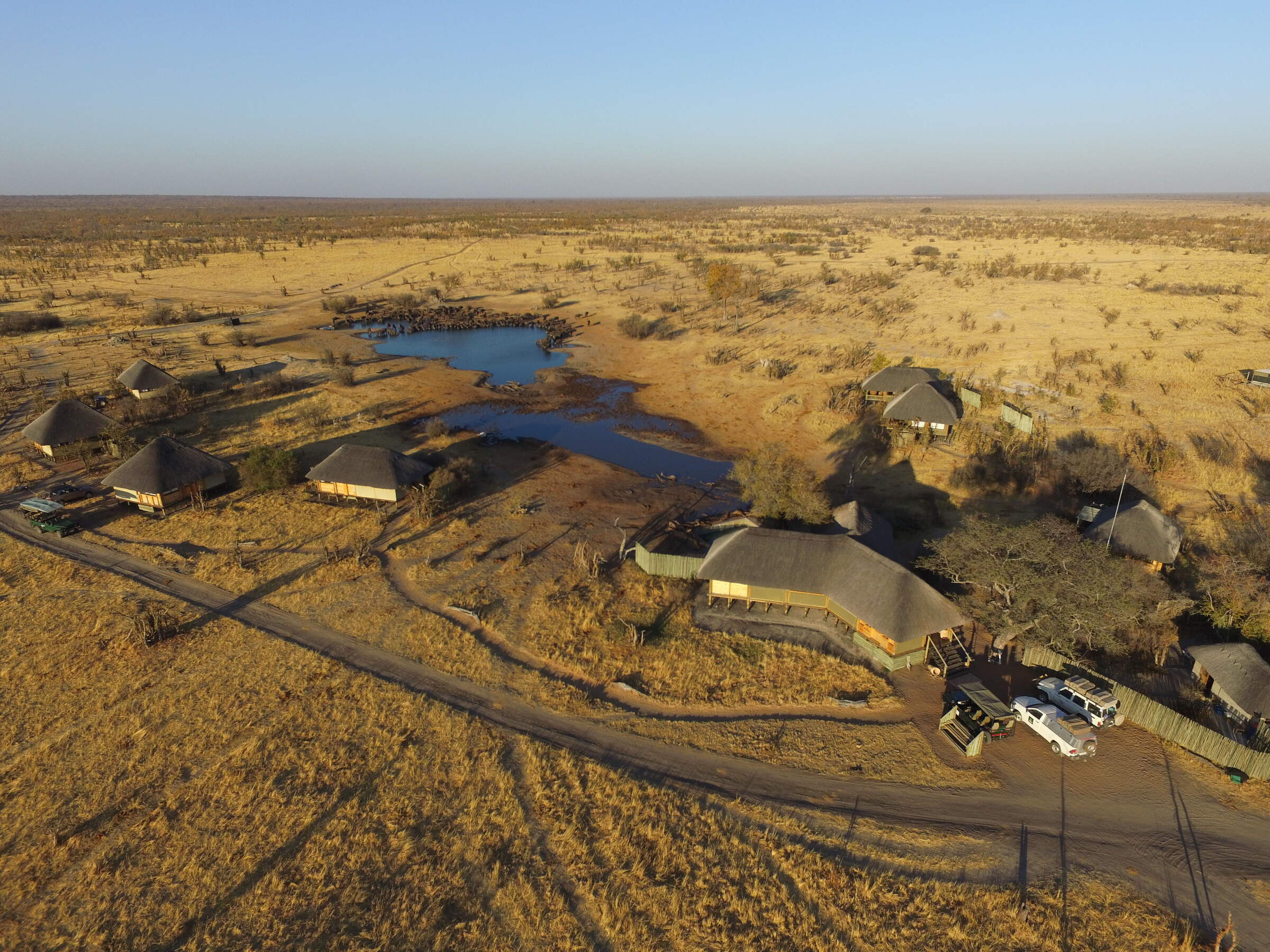
Nehimba Lodge
Nehimba is a comfortable, good-value camp in a remote area of Hwange National Park, teeming with wildlife.
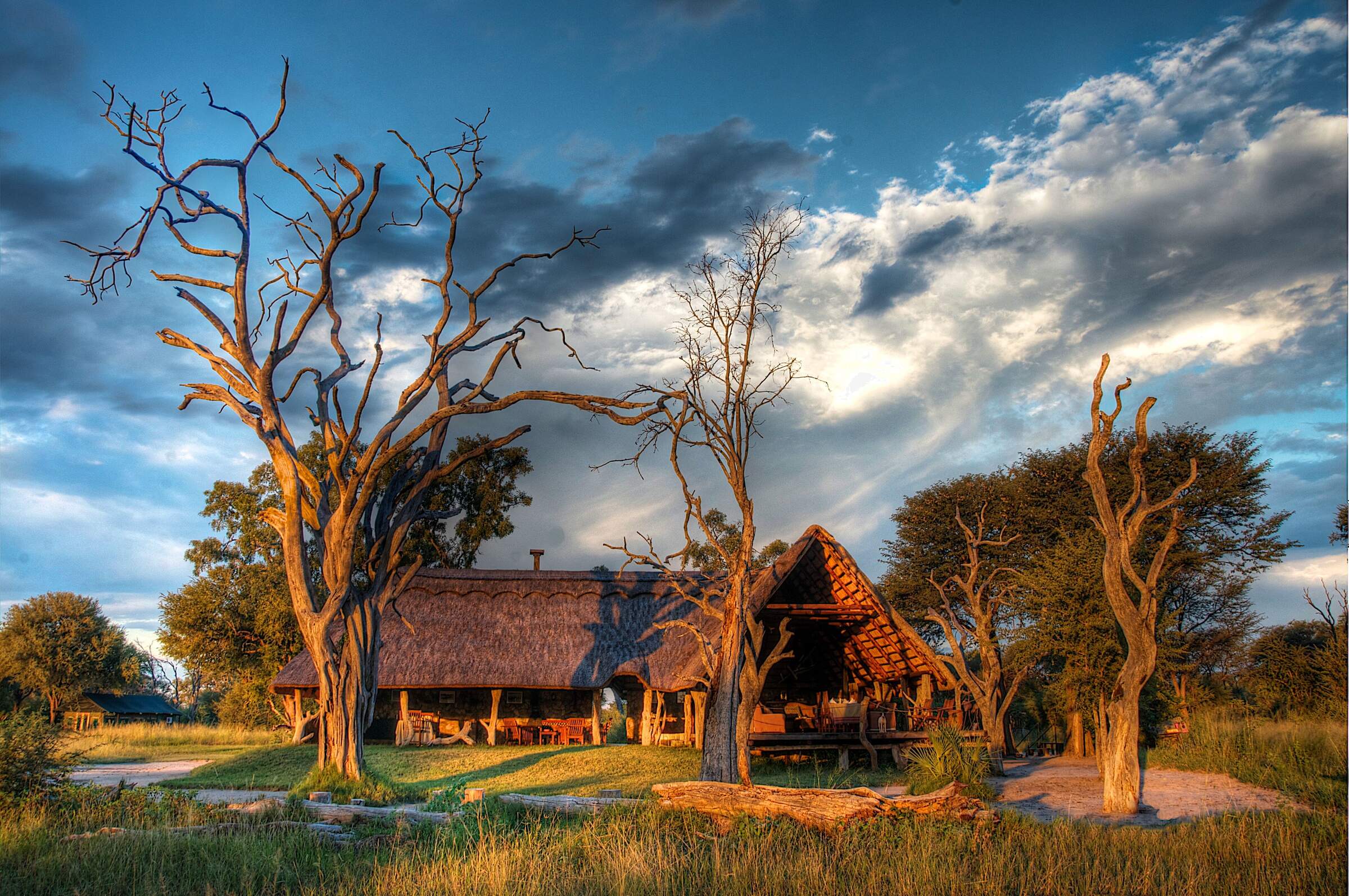
Bomani Tented Lodge
Bomani is a down-to-earth lodge with a range of activities in a remote region of western Zimbabwe, adjacent to Hwange National Park.
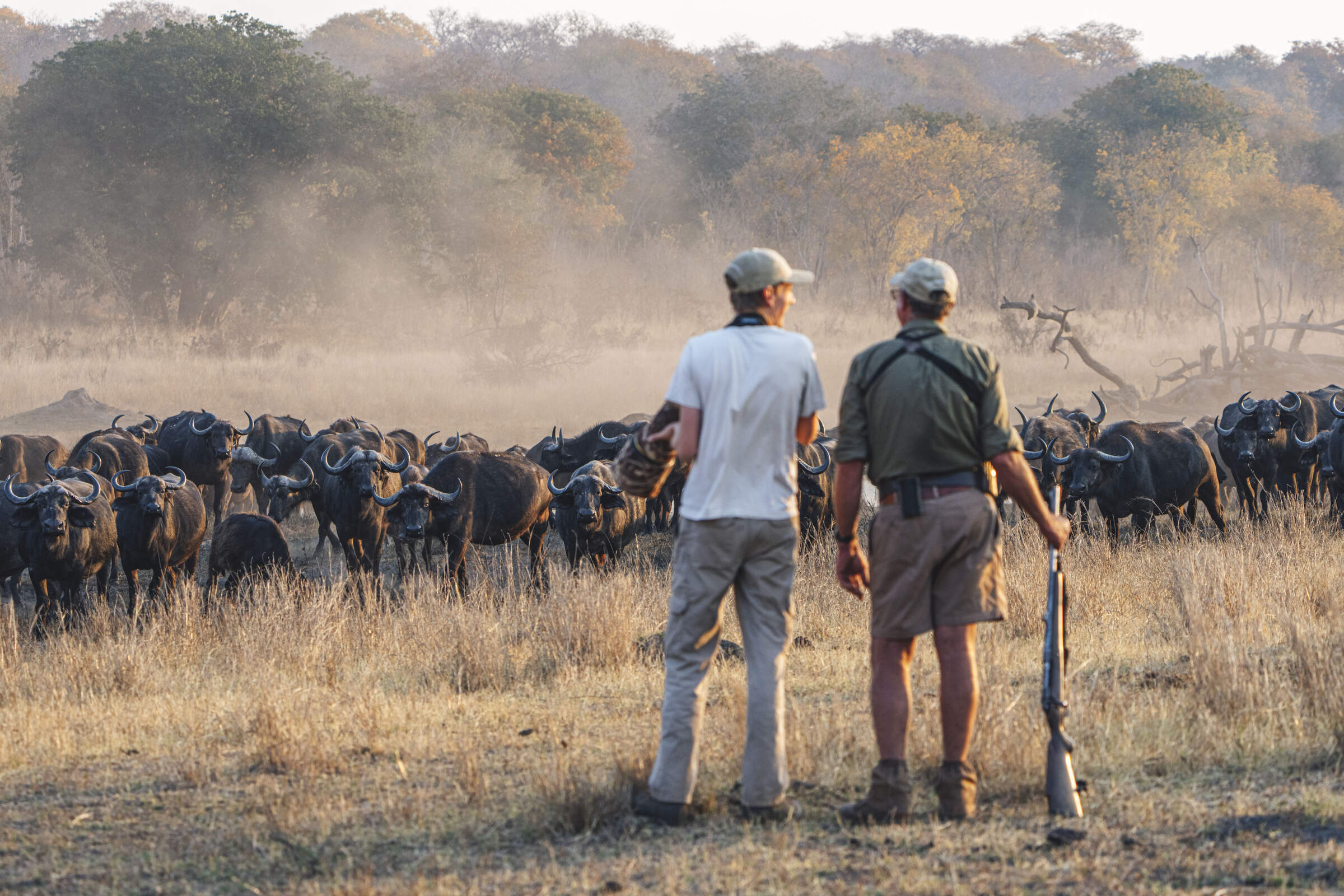
Khulu Bush Camp
Just outside Hwange National Park, Khulu Bush Camp features a waterhole popular with wildlife, especially elephants and offers excellent value for money.
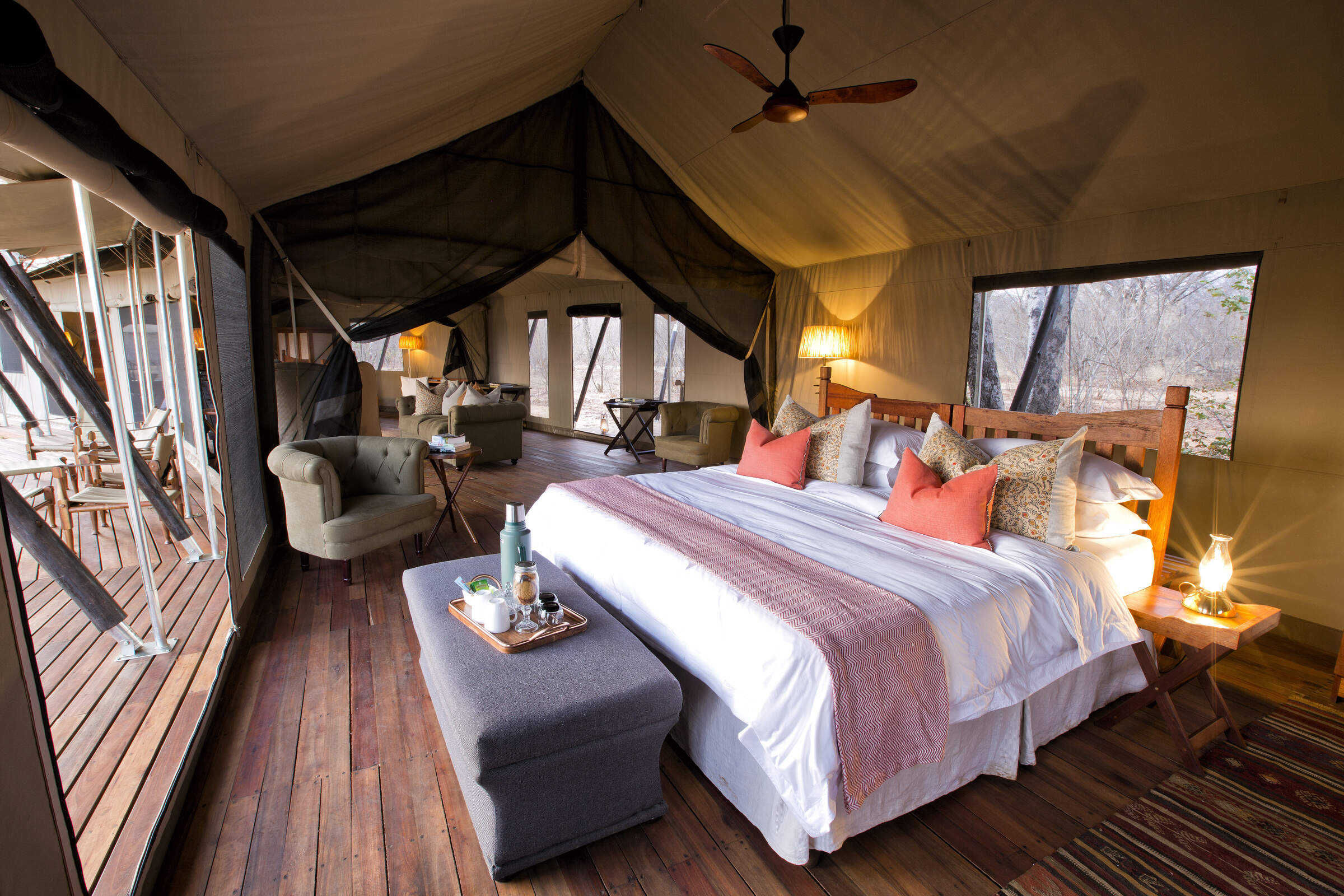
Verney's Camp
Verney's Camp is one of the newest offerings in Hwange, located in the wildlife rich, open landscape in the south-eastern section of the park.
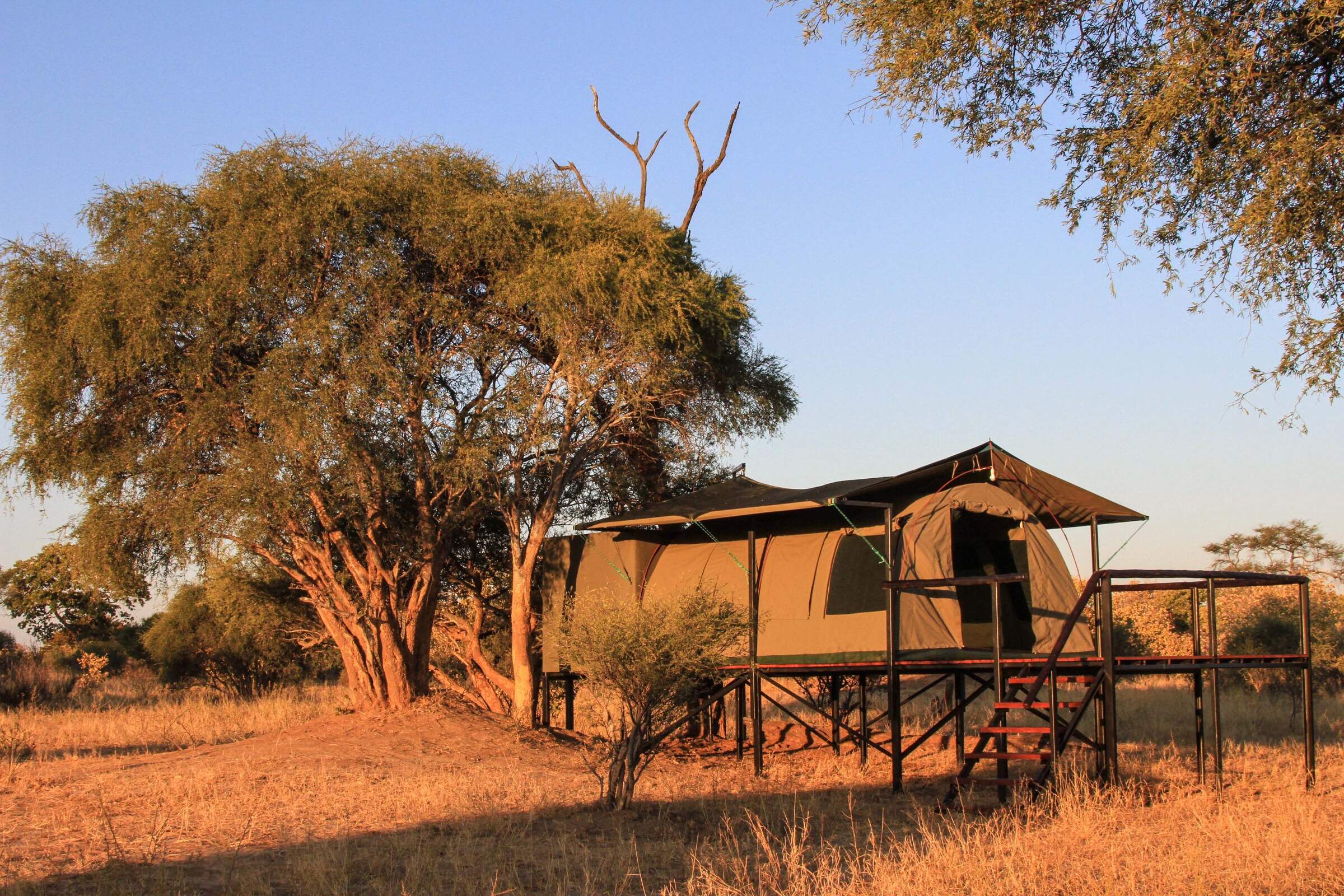
Jozibanini Camp
Remote and rugged, Jozibanini is one of the most remote camps in Zimabwe's largest National Park. Stay here for a real wilderness experience.
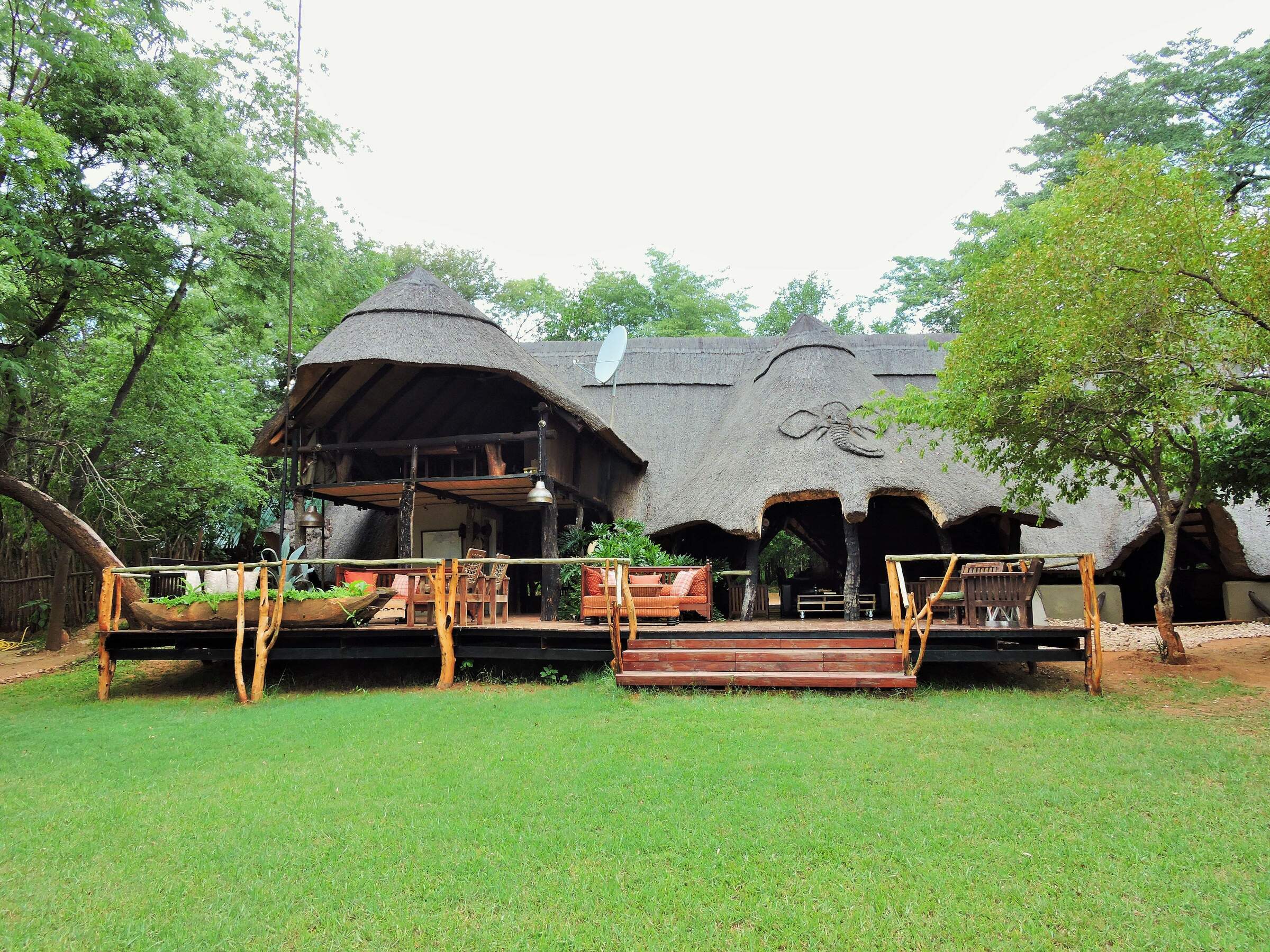
Ivory Lodge
Just outside Hwange National Park, the small Ivory Lodge is a great place to see large herds of elephant as well as smaller plains game.
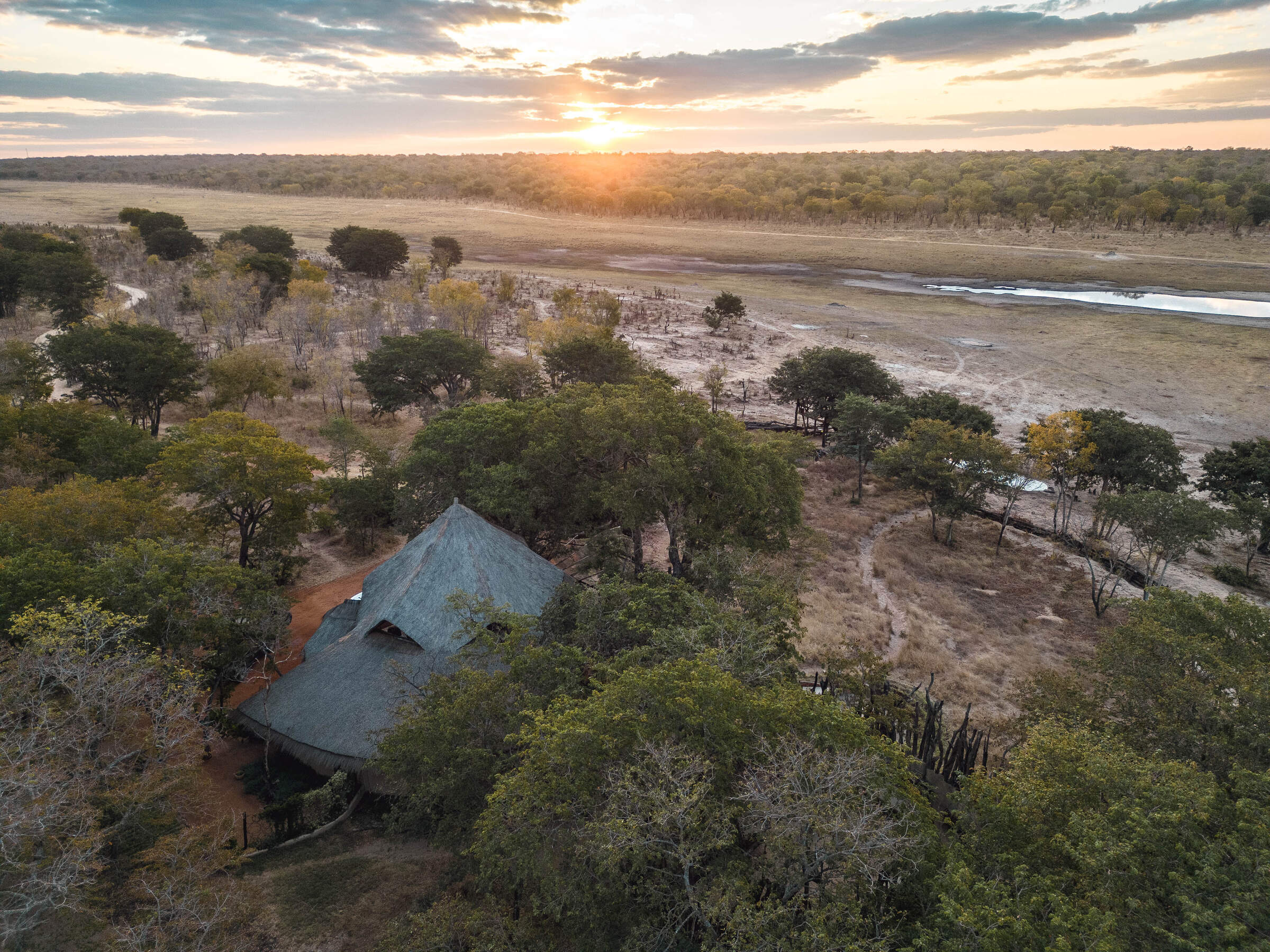
Sable Valley Lodge
Set on the 12km Dete Vlei, the recently upgraded and family-friendly Sable Valley sits in a private reserve within easy reach of Hwange National Park.
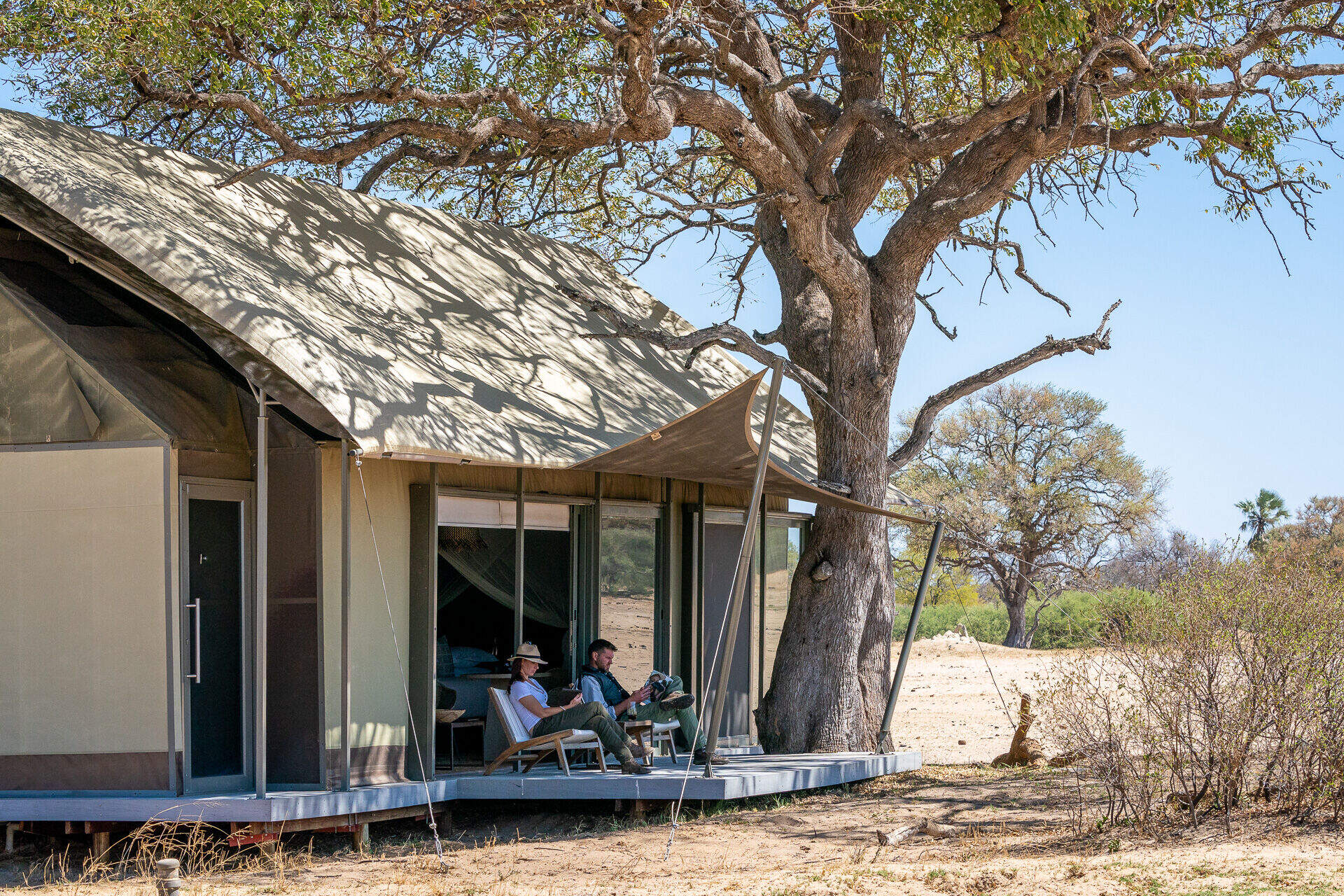
Linkwasha Camp
In its own private concession within Hwange National Park, Linkwasha offers excellent wildlife sightings and luxurious surroundings.
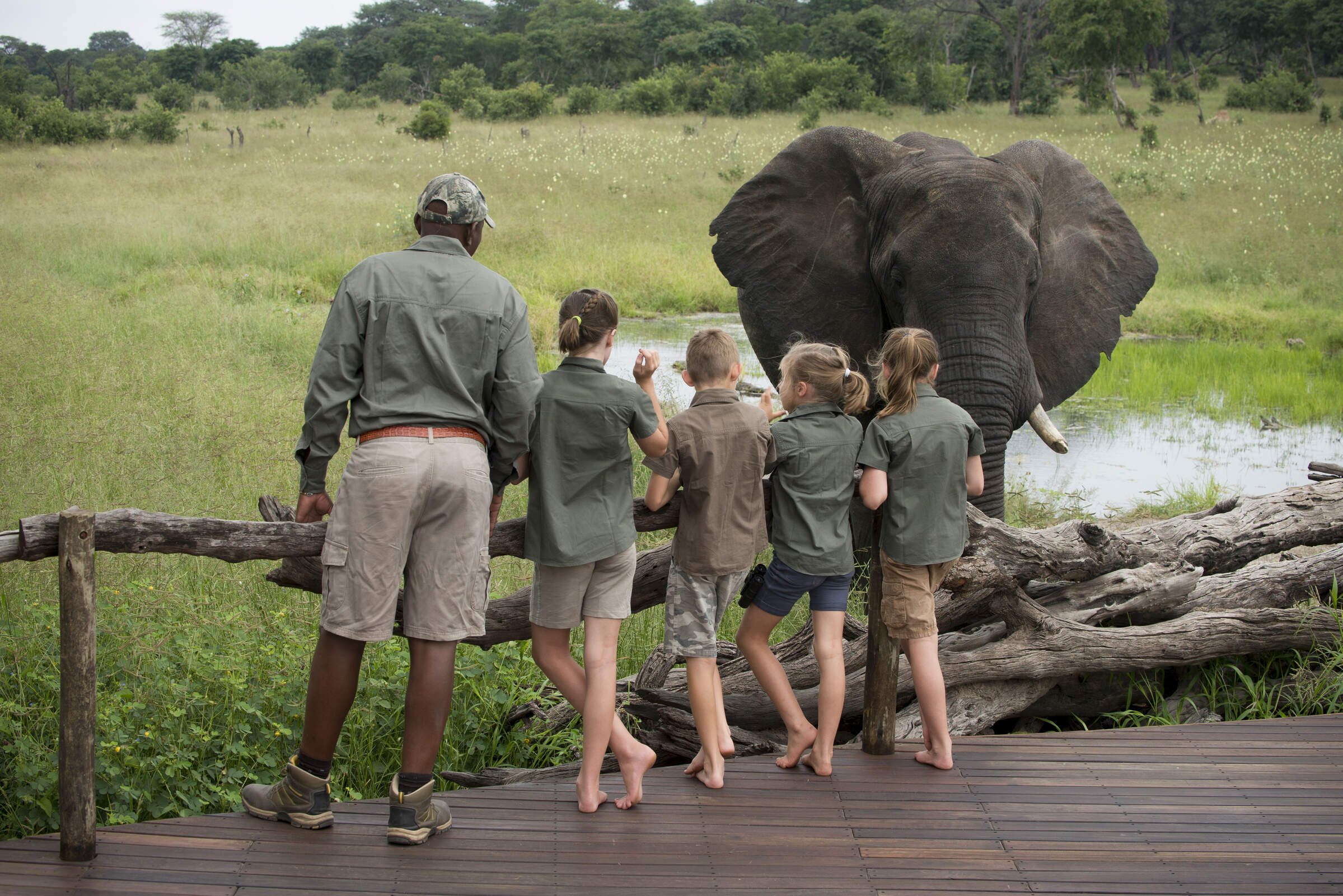
Somalisa Acacia
Somalisa Acacia is a family-friendly, yet remote and luxurious safari camp in Hwange National Park.
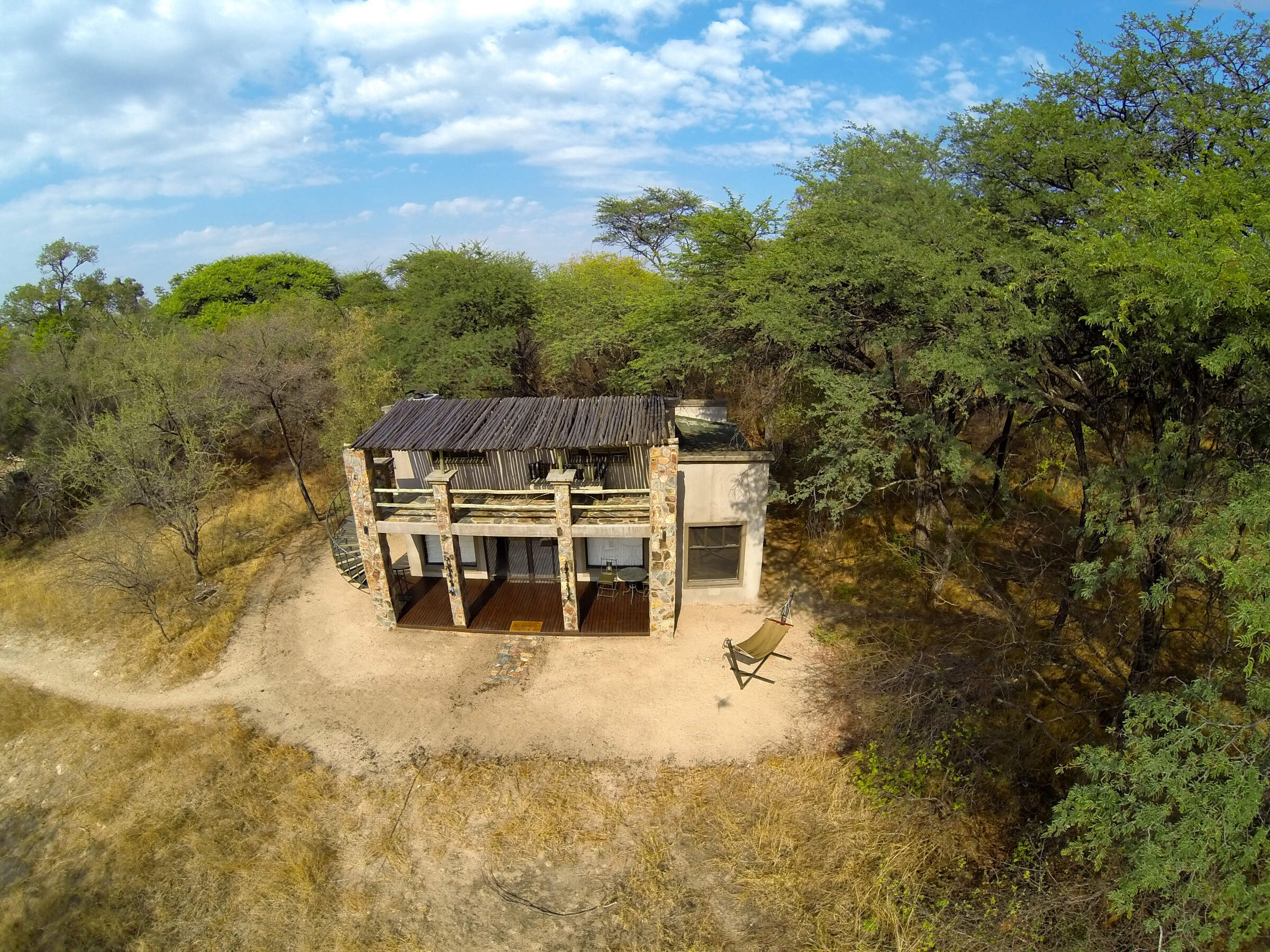
Camelthorn
Camelthorn is a stylish lodge with a range of activities in a remote region of western Zimbabwe, adjacent to Hwange National Park.
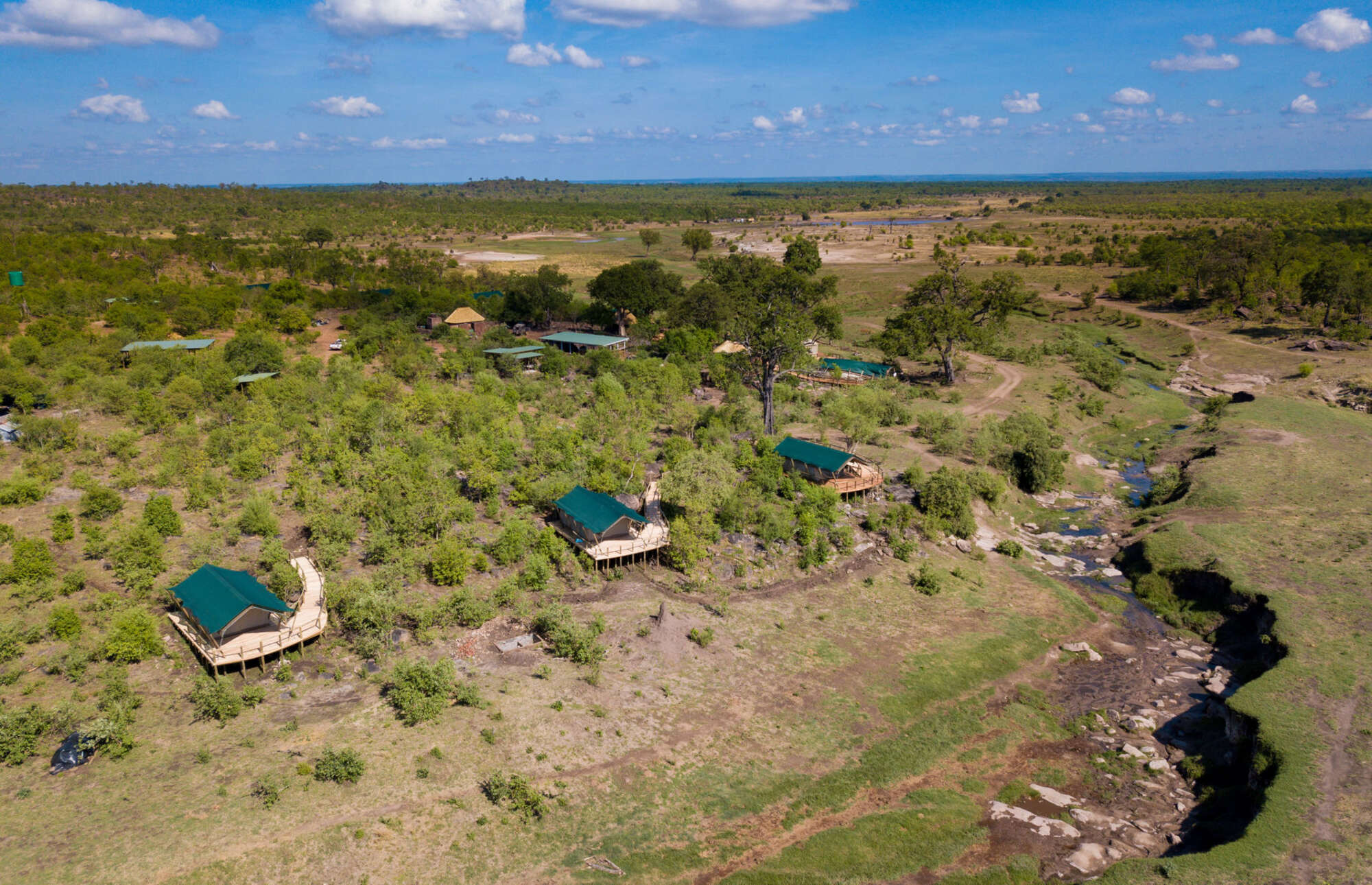
Deteema Springs Camp
In the remote north-west of Hwange National Park, Deteema Springs is a well-designed but unpretentious tented camp that offers good service and excellent wildlife potential.
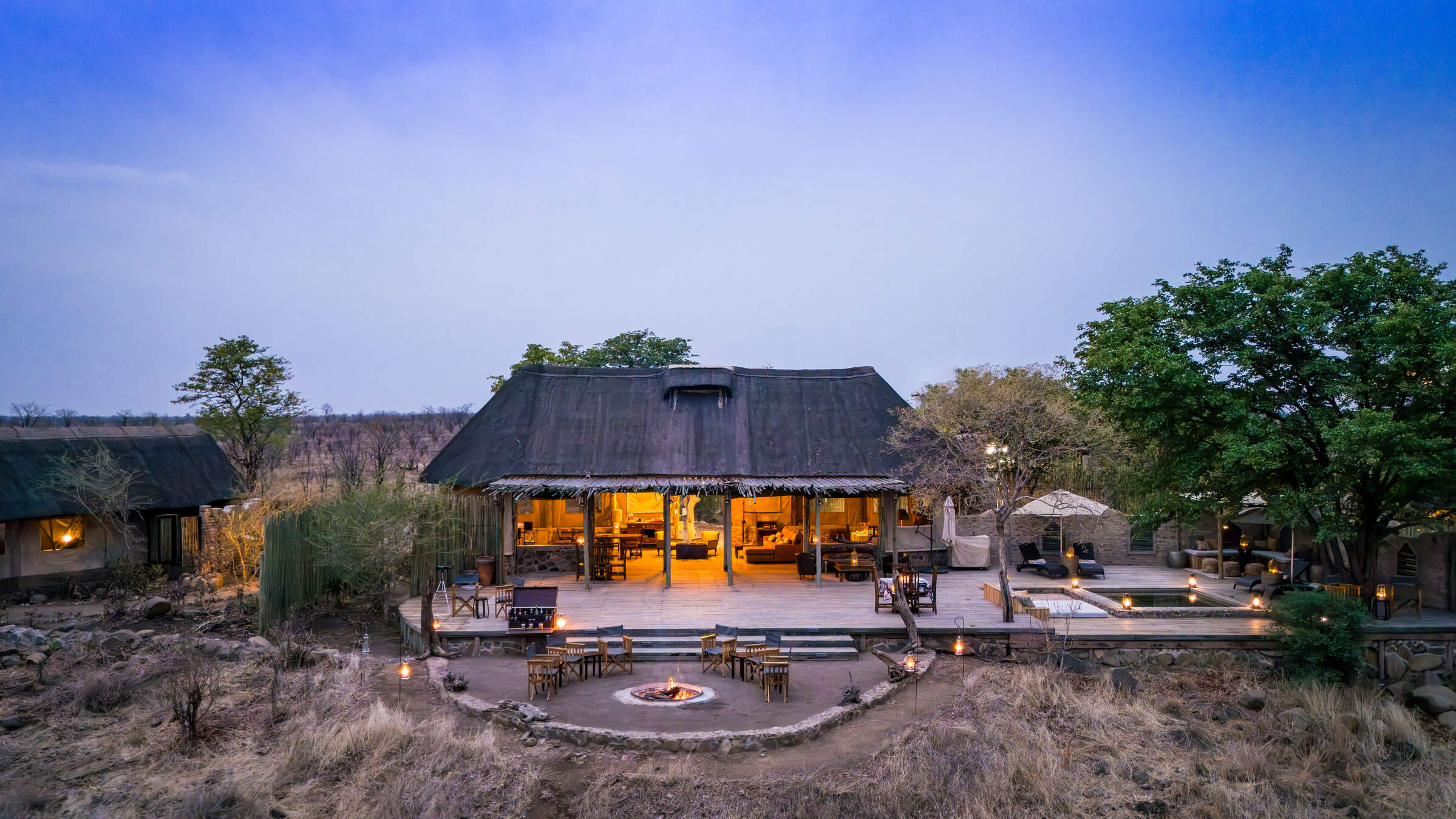
Daka Camp
One of the most remote camps in Hwange National Park, Daka Camp, like the smaller Daka Expeditions, sits almost on the border with Botswana.
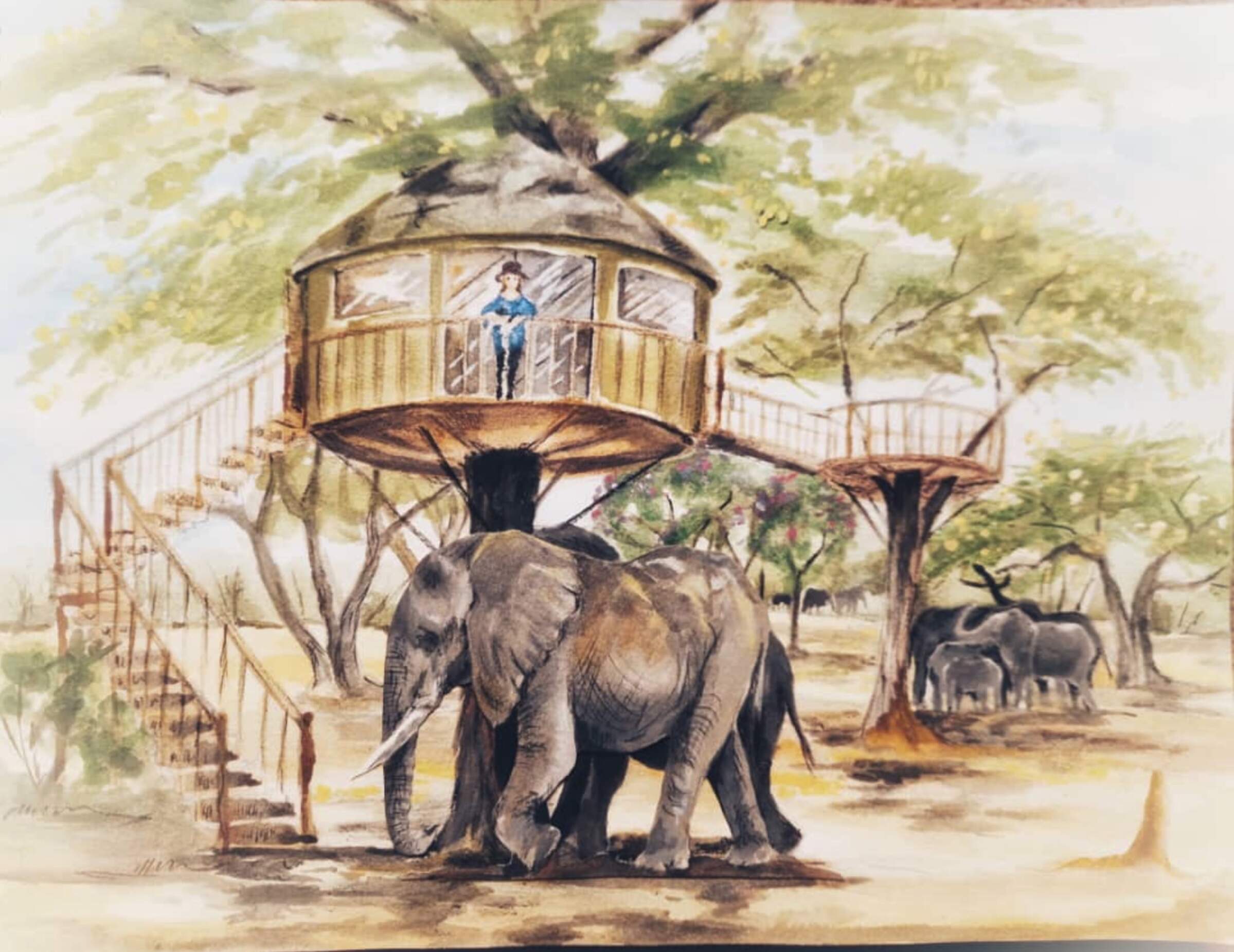
Tum Tum
The Tum Tum Treehouses are due to open in late 2025. Details on this exciting development are still scarce, so watch this space.
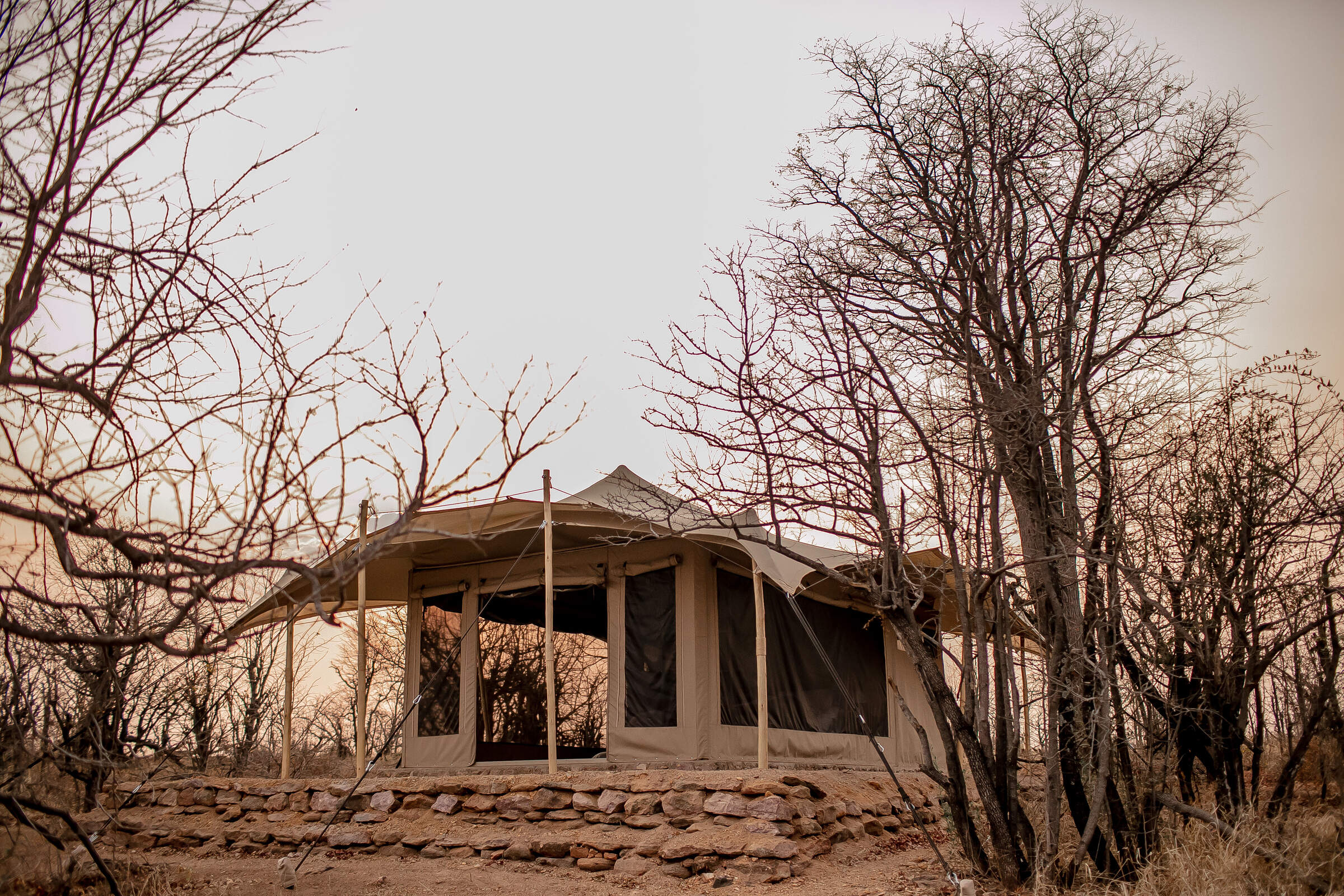
Camp Chitubu
Nestled in the rugged north of Hwange National Park, the unpretentious yet comfortable Camp Chitubu has a strong focus on excellent guiding.
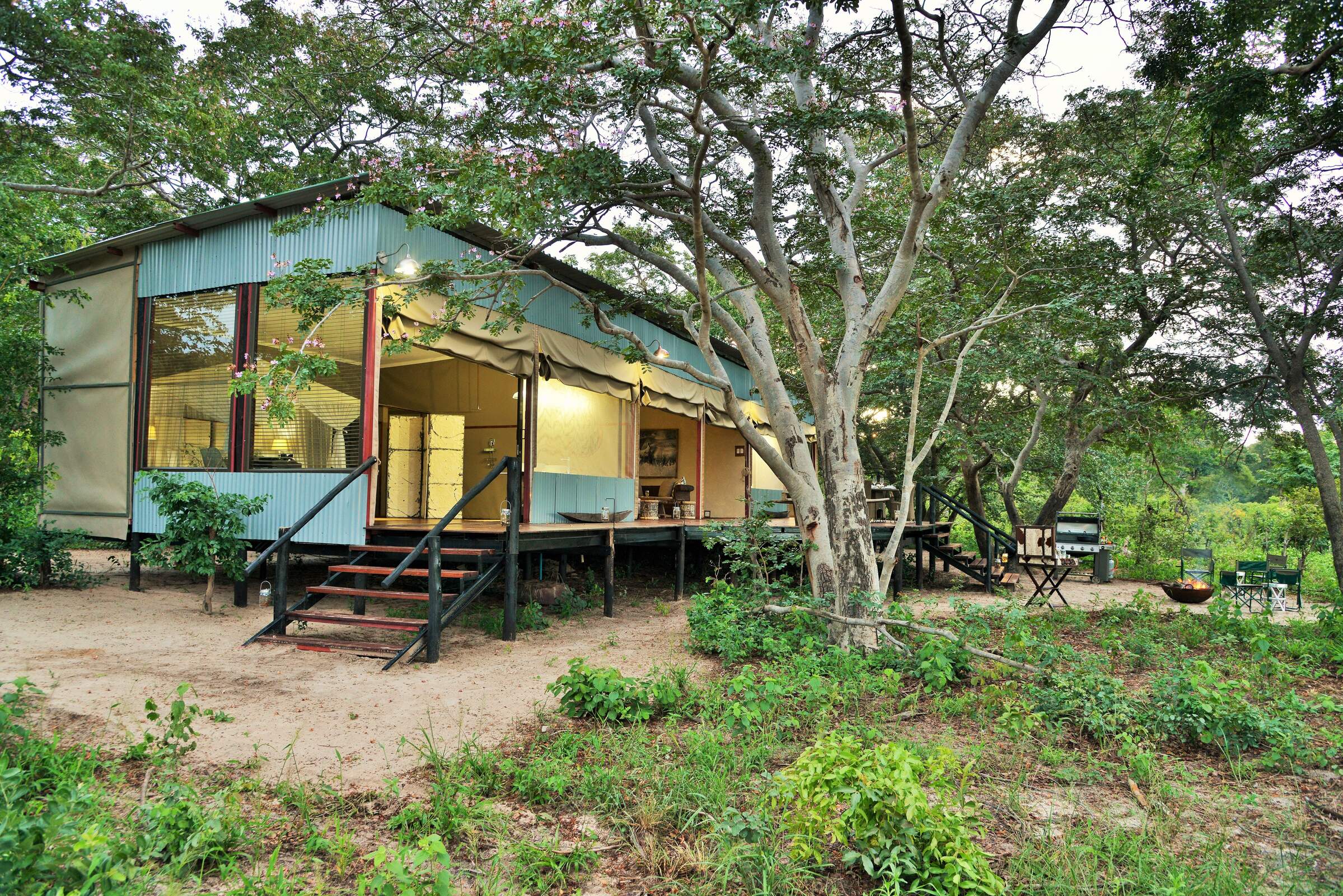
Khulu's Retreat
Just outside Hwange National Park, Khulu's Retreat is an exclusive private villa and is a great place to spoil yourself on a safari in Zimbabwe.
When to go to Hwange National Park
Our month by month guide: What it's like to visit Davison's Camp in Hwange National Park
Jan
Feb
Mar
Apr
May
Jun
Jul
Aug
Sep
Oct
Nov
Dec
Zimbabwe in January
January falls in the middle of Zimbabwe’s rainy season and is the wettest month of the year. Heavy rainfall occurs most days, flooding seasonal rivers and waterholes, with the occasional sunny spell.
With the high levels of precipitation the wildlife in the national parks becomes widely dispersed, taking advantage of the abundance of food and water, and is easily hidden by the thick, green bush.
While sightings of larger animals are possible, and many species drop their young at this time, game viewing is often sparse. However, many migratory species of bird arrive in Zimbabwe making it a peak month for birding.
The rains create incredibly sticky mud in Mana Pools National Park, preventing access and causing camps to close for the season. The majority of the camps in other parks remain open, with low rates attracting a smattering of visitors.
- Peak of the rainy season: hot & humid with heavy rain most days
- Bush exceptionally thick and green, with poor game viewing
- Species such as impala drop their young
- All camps in Mana Pools closed
- Very few visitors, and low rates at open camps
Our view
A time to avoid if possible
Weather in January
Zimbabwe in February
February remains well within Zimbabwe’s rainy season. Although total rainfall drops, relatively short thunderstorms can still be expected most afternoons. On the plus side, there is a greater chance of some sunshine in-between.
Much of the country remains waterlogged, closing access to Mana Pools and severely restricting walking safaris in other parks. While game drives and canoeing remain an option, the abundance of water disperses animals, and thick grass can make it difficult to spot larger species, but birding remains excellent. Conversely, this is a great time of year to view the landscape, and is excellent for photographers. Sporadic cloud cover and clear air can make for some spectacular sunsets too, particularly over Lake Kariba and the Zambezi River where the reflections off the water add to the beauty.
- Generally wet with frequent thunderstorms & hot humid days
- Poor wildlife viewing due to dispersed animals & thick bush
- Clear air, green landscapes & exceptional sunsets
- All camps in Mana Pools closed
- Very few visitors & low rates at camps that are open
Our view
This is not a great time to visit
Weather in February
Zimbabwe in March
March is the final month of Zimbabwe’s rainy season, when the rains start to trail off and sunny days become the norm. However, some days the clouds can still build, breaking into thunderstorms in the afternoon.
Mana Pools remains closed throughout the month but the majority of camps in Hwange, Matusadona and Gonarezhou remain open. Here, the landscape is green and alive, with migrant species of birds taking advantage of the abundant insect life. Larger animals remain elusive though, and walking safaris remain restricted.
By this time of year, the rains have normally trickled down to the Zambezi River and the flow of water over the Victoria Falls starts to increase, but without kicking up too much spray to obscure the views.
- Last month of the rainy season: hot, humid days with occasional storms
- Lush vegetation means good birding, but poor game viewing
- Views of the Victoria Falls improve
- All camps in Mana Pools closed
- Open camps have few visitors & low rates
Our view
This is not a great time to visit
Weather in March
Zimbabwe in April
April marks the end of Zimbabwe’s rainy season and the end of summer. Clear skies are the norm, with just the occasional shower. Temperatures start to drop, failing to reach 30ºC most days and dropping down to around 10ºC at night.
As the rain fades the landscape starts to dry out. While the vegetation remains thick and green, the soil in Mana Pools dries enough for camps to open, and the only camps to remain closed are the most remote bushcamps in Hwange. Although viewing of larger animals remains tricky, the improved weather starts to draw back visitors, as do prices significantly below those in the peak season.
The Zambezi River and flow of water over the Victoria Falls is at its highest, although large amounts of spray diminish views of the waterfall itself.
- Transitional period, with much lower rainfall & falling temperatures
- Wildlife is still dispersed & hard to see, but sightings improving
- Views of the Victoria Falls often obscured by spray
- Camps in Mana Pools open
- Visitors start to return & camps increase their rates
Our view
A good time to visit, with pros & cons
Weather in April
Zimbabwe in May
The first month in the dry season, May is also Zimbabwe’s first month of winter. If the rains are particularly late in a given year, you may catch the odd shower, but you can expect clear and sunny days the majority of the time. While it’s warm in the daytime, temperatures drop to single digits at night, so bring a warm jumper and gloves for early morning drives.
With the rain having cleared the air, the sky is bright blue, and it’s the best time of year for photography.
Even the most remote camps in Zimbabwe are now open. With the lack of rainfall, vegetation dies back significantly, and seasonal rivers return to sand. Not only does this open up the possibility of walking safaris, but wildlife viewing becomes much more reliable.
- Start of the dry season, with milder days and cold nights
- Game viewing significantly improves as vegetation dies back
- Vegetation starts to turn from green to brown
- Best time for photography with crystal clear air
- Visitors start to return; all camps open & rates increasing
Our view
A very good time to visit
Weather in May
Zimbabwe in June
During June you can virtually be guaranteed of dry and sunny days, although temperatures continue to drop, and can get close to freezing at night in Hwange National Park. Jumpers, jackets and gloves are strongly recommended for early mornings and evenings.
The opportunities for wildlife viewing improve throughout the month as the landscape rapidly dries, and the animals start to gather on the banks of the Zambezi River and around Hwange’s waterholes.
Water levels in the Zambezi River start to drop, reducing the amount of spray kicked up at the Victoria Falls and greatly improving visibility, but still allowing a full curtain of water to cascade over the edge.
- Middle of winter, with night-time temperatures close to freezing
- Game viewing significantly improves throughout the month
- Views of the Victoria Falls are at their best
- Noticeable increase in visitor numbers
- Camps considerably more expensive
Our view
A very good time to visit
Weather in June
Zimbabwe in July
July sits in the middle of Zimbabwe’s dry season. Although it’s warm at midday, temperatures are generally cold and in Hwange it’s been known to drop below freezing at night, with the lower-altitude Mana Pools feeling a bit warmer.
With wildlife clustering around the few remaining waterholes, sparse vegetation, and some of the best views of the Victoria Falls, this is one of the most popular times to travel, with camps charging peak season rates to reflect this. That said, visitor numbers to the country in general remain low, and outside of the Victoria Falls it’s rare for any areas to feel crowded.
- Middle of the dry season with almost no chance of rain
- Clear sunny days, but very cold nights
- Wildlife viewing good; game drives and walking safaris unrestricted
- Views of the Victoria Falls at their best
- Camps charging peak season rates
Our view
A very good time to visit
Weather in July
Zimbabwe in August
While August is the end of winter and temperatures are starting to creep up, mornings and nights are still cold, and game drives in open vehicles can feel particularly chilly. Well into the dry season, the landscapes will have mostly transformed from green to brown and wildlife viewing in Zimbabwe’s national parks is approaching its best. Due to dust kicked up into the atmosphere and smoke from bush fires you may start to notice a haze on the horizon, but this doesn’t significantly impact photography.
August is one of the most expensive months, and the pleasant weather and decent game viewing attracts lots of visitors. While the national parks rarely feel crowded, Victoria Falls accommodation can sell out a year in advance.
- Warm, sunny days but cold mornings & nights; almost no chance of rain
- Wildlife viewing nearly at its best
- Landscape turns brown, & an atmospheric haze develops
- All camps charging peak season rates
Our view
Fantastic: the very best time to visit
Weather in August
Zimbabwe in September
Temperatures in September rarely drop below 15ºC, but are yet to reach the oppressive highs of summer. It will normally have been five months since the last drop of rain, so antelope and elephants cluster around whatever water remains, with predators never too far away.
The landscape is very brown, and the haze building on the horizon takes some of the colour out of the sky, so while animal subjects are plentiful, the background is not ideal for photography.
The combination of incredible wildlife viewing, hot and sunny weather, and cheaper flights outside of the school holidays make this the most popular time of year to travel, and availability at the camps can become limited up to a year in advance.
- The best month for weather, with a pleasantly warm temperature range
- One of the best months for game viewing
- Victoria Falls starting to dry but still impressive on Zimbabwean side
- All camps are charging peak season rates
- Most popular time to travel, & space can be limited
Our view
Fantastic: the very best time to visit
Weather in September
Zimbabwe in October
October is the last month of the dry season with little chance of rain but building humidity. While the higher elevation of Hwange National Park limits temperatures to the 30s Celsius, they can easily top 40ºC in Mana Pools.
With little vegetation or water, wildlife is drawn to the few remaining water sources and viewing is at its best; visitors who brave the heat can be rewarded with some exceptional sightings, although haze in the air diminishes photos. Maximum visibility and dense wildlife concentrations can also make for very rewarding walking safaris, although the heat can make them uncomfortable.
Water levels in the Zambezi at the Victoria Falls drop significantly, and large stretches of the waterfall are a dry cliff-face – although it never dries completely. Camp rates remain at their peak, but visitor numbers drop as people avoid the heat.
- Last month of the dry season; very hot with building humidity
- Wildlife viewing at its very best
- Dust & smoke in the air diminish photographic opportunities
- Victoria Falls starting to look very dry
- Camp rates remain at their peak
Our view
A very good time to visit
Weather in October
Zimbabwe in November
November is a transitionary period, with high temperatures and humidity. While they can’t be predicted with any precision, the first rains normally arrive halfway through the month, in the form of thunderstorms lasting a few hours each day.
Early November is a popular time to travel as the camps drop their rates, so if you’re lucky you can get peak-season game viewing at low-season rates. This is a gamble though as if the rains do arrive, animals are no longer limited to a few dangerous waterholes and will disperse into the bush. While all the camps in Mana Pools intend to remain open, the rains can make the airstrips unusable so you may find yourself moved to a different park, a risk that increases through the month.
- Typically the start of the rains in Zimbabwe
- Temperatures & humidity levels remain high
- Wildlife viewing rapidly diminishes as the rains arrive
- Camps remain open, but risk early closure in Mana Pools
- Much cheaper time to travel as camps drop their rates
Our view
A good time to visit, with pros & cons
Weather in November
Zimbabwe in December
By December the rainy season has begun in earnest; this is one of the wettest months in Zimbabwe, with heavy thunderstorms most afternoons and occasionally continuous rain for a couple of days. While temperatures start to cool down the high levels of humidity can make the heat feel more oppressive.
With the rains comes an explosion of green growth, and the dust and smoke are washed out of the air. The resulting scenery – with the occasional bright blue skies – can be fantastic for photographers. Thick vegetation and plentiful water makes viewing of larger animals tricky, but with migratory species arriving the birding is at its best.
All camps in Mana Pools and the remote Hwange camps close, with those remaining open charging their lowest rates.
- One of the wettest months in Zimbabwe
- High temperatures & levels of humidity
- Wildlife viewing poor, but birding good
- Lush green landscapes & clear air; great for landscape photography
- All camps in Mana Pools closed
Our view
This is not a great time to visit
Weather in December

Looking for inspiration on where to travel next?
Visit our trip chooser to explore your options and find inspiration for your perfect African adventure
Inspire me